Course Finder
Find a course, institution or scholarship in Melbourne or regional Victoria
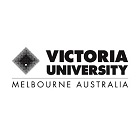

Bachelor of Early Childhood Education
Victoria university, course details.
CRICOS course code: 096869G
Level of study: Bachelor’s Degrees
Become an in-demand early-childhood teacher, equipped with effective skills and practical experience, with a Bachelor of Early Childhood Education at Victoria University (VU).
Be part of the massive future growth expected in early childhood education, with over 10,600 new jobs expected to be added in the next five years.
Now’s the time to kickstart your career as an early childhood teacher, with Victorian Government scholarships and financial incentives available to early childhood students and teachers.
Your Bachelor of Early Childhood Education will prepare you for a rewarding career nurturing the development and wellbeing of children from birth to five years. As a degree-qualified early childhood teacher, you’ll:
support young children with the important foundations to set them up for success in life
develop techniques for involving families as important contributors to the learning process
set children up for effective transitions to school.
At VU, you will learn to support children to feel capable and confident. You’ll build a strong sense of social justice, understand child development in the early years and develop ethical professional teaching practice that includes Indigenous perspectives.
Take advantage of the high demand for bachelor-qualified early childhood teachers with funded three-year-old kindergarten rolling out across Victoria and an expected 21.6% growth in childcare jobs by 2026. With this nationally accredited degree, you can work around Australia in:
public or private kindergartens
long day care centres
early childhood centres in Australia
policy development with government bodies.
Thanks to the essential experience you’ll get from teaching in childcare settings and kindergartens during your placements, you’ll be ready to register as a teacher as soon as you graduate.
Click here for more details on this course.
| Tuition Fees (AUD $) | Start date | Duration | Campus |
|---|---|---|---|
| 31,000 Per Year | 30 Sep 2024 | 3 years | City Campus 370 Little Lonsdale Street (VU City Tower) & 295 Queen Street (Law hub) Melbourne Victoria 3000 Australia |
| 31,000 Per Year | 30 Sep 2024 | 3 years | Footscray Nicholson Campus Corner of Nicholson and Buckley Streets Melbourne Victoria 3011 Australia |
Entry criteria
Completion of an Australian Senior Secondary Certificate (VCE or equivalent) including Units 3 and 4: a study score of at least 25 in English (EAL) or 20 in any other English (or equivalent). OR: Completion of an Australian Advanced Diploma or Diploma (or equivalent). OR: Completion of a Foundation course or equivalent.
English language requirements
IELTS (Academic module): Overall score of 6.0 (no band less than 6.0)
TOEFL Internet: Overall score of 67 (Listening 12, Speaking 18, Reading 15, Writing 21)
Pearson Test of English (PTE): Overall score of 50 (no section score less than 50)
University of Cambridge - Advanced (CAE): Overall score of 169. No individual band less than 169.
VU English - English for Academic Purposes (EAP) (Level 4): achieved.
Similar course options
- Search Jobs
- Browse Employers
- Further Study
- Career Advice
- Virtual Experiences
- Employers/Post job
- Institutions
Victoria University (VU)
- 37% international / 63% domestic
- Scholarships 2
- Campuses 12
- Student Stories 3
- Academic Profiles 1
Bachelor of Early Childhood Education
Key details, about this course.
In our early-childhood degree you'll participate in units focused on children from birth to five years. You'll come to understand how early-childhood and kindergarten teaching can include children and families as contributors to the learning process.
You'll graduate with expertise built on a strong sense of social justice, learnt through childcare and kindergarten-teaching experience and critical perspectives on early-childhood theory.
When you study early childhood education, you will gain insight into the early years by studying these fascinating areas:
- child development
- teaching practice that includes Aboriginal perspectives
- education and curriculum studies focused on relationships and meaning
- advocacy and activism in early-childhood settings
- history and philosophy of early childhood
- ethical early-childhood professional practice.
In first year all students attend the City Campus. In second year, which is a practical year, all classes are held at Footscray Nicholson where there is the Art Studio and Vu Play Space. In third year students will complete their course either at City Tower or online.
Study locations
Footscray park, footscray nicholson, career pathways.
Childcare job openings are expecting massive growth (ACECQA).
Thanks to the essential experience you'll get from working in childcare and teaching in a kindergartens during your placement, you'll be work-ready before you even graduate.
Typically, our students find work in kindergartens and childcare centres, in jobs such as:
- kindergarten teacher
- early childhood teacher.
Check the salary for early-childhood teachers in Australia (Labour Market Insights).
Course structure
To attain the Bachelor of Early Childhood Education students will be required to complete:
- 288 credit points of Core studies
Students also undertake practical placements that include 80 days supervised professional experience.
Credit for prior study or work
Use our credit calculator to find out how much credit you could get towards your course, based on your previous study.
If you have completed study with another university or institution and believe you are eligible to receive credit for skills and past study, you can apply for advanced standing.
Applications for advanced standing can be made after a discussion with your course chair or academic adviser.
How to apply
Before applying, you should consider whether you also want to apply for:
- Special admission programs: Depending on your life circumstances you may be eligible for special consideration of your application.
- Advanced standing: If you have significant experience or studies elsewhere you may be eligible for credit for some units of your course and not have to undertake them.
Find out more about applying for our courses.
Graduate outcomes
- Mechanical engineering graduate jobs & programs
- Marketing & Sales graduate jobs & programs
- Legal and law graduate jobs & programs
- Investment banking graduate jobs & programs
- IT graduate jobs & programs
- Engineering graduate jobs & programs
- Accounting graduate jobs & programs
- Business and commerce graduate jobs & programs
- Civil & structural engineering graduate jobs & programs
- Finance graduate jobs & programs
- Government graduate jobs & programs
- Graduate jobs & programs in Sydney
- Graduate jobs & programs in Melbourne
- Graduate jobs & programs in Brisbane
- Graduate jobs & programs in Perth
- Graduate jobs & programs in New Zealand
- Freshers jobs in India
- Fresh graduate jobs in Indonesia
- Fresh graduate jobs in Philippines
- Graduate jobs & programs in Malaysia
Copyright 2024 © Prosple. In Partnership with St Mark's College .
Bachelor of Early Childhood Education
Why study this course.
This course will prepare you for a role as an Early Childhood Teacher, working with children from birth to 5 years.
Where is this course offered?
Available campuses.
- City Campus
- Footscray Nicholson
The course duration and available study modes can vary depending on the campus.
Visit Victoria University 's website to find out more about your study options.
Other institutions that offer this course
Ikon institute of australia featured, deakin university, box hill institute, student ratings of victoria university courses.
SEEK Learning has not verified the truth or accuracy of these comments and does not adopt or endorse any of the comments posted on this page. SEEK Learning collects and posts the comments for what they are worth and for information purposes only to help future students make an informed choice for their education through www.seek.com.au/learning . View our Community Guidelines and further information here .
Find out more
Search related fields of study:.
- Early Childhood Education
- Education Support
- Early Childhood
- Child Development
- Primary Teaching
- Childcare Professional Development
- Early Education
- Kindergarten Teaching
- Career Advice
- Businesses for sale
- Volunteering
- Terms of use
- Scholarships
- Institutions
- Agriculture & Environment
- Architecture & building
- Business & management
- Creative arts
- Engineering & technology
- Health sciences
- Information Technology
- Law & justice
- Policy & government
- Public health
- Social Science
- Choosing a course
- International students
- Funding & scholarships
- Study advice
- Student life
- Getting a job
- Latest news
Victoria University (VU)
- 37% international / 63% domestic
- Scholarships 2
- Campuses 11
- Student Stories 3
- Academic Profiles 1
Bachelor of Early Childhood Education
Key details, about this course.
In our early-childhood degree you'll participate in units focused on children from birth to five years. You'll come to understand how early-childhood and kindergarten teaching can include children and families as contributors to the learning process.
You'll graduate with expertise built on a strong sense of social justice, learnt through childcare and kindergarten-teaching experience and critical perspectives on early-childhood theory.
When you study early childhood education, you will gain insight into the early years by studying these fascinating areas:
- child development
- teaching practice that includes Aboriginal perspectives
- education and curriculum studies focused on relationships and meaning
- advocacy and activism in early-childhood settings
- history and philosophy of early childhood
- ethical early-childhood professional practice.
In first year all students attend the City Campus. In second year, which is a practical year, all classes are held at Footscray Nicholson where there is the Art Studio and Vu Play Space. In third year students will complete their course either at City Tower or online.
Study locations
Footscray park, footscray nicholson, career pathways.
Childcare job openings are expecting massive growth (ACECQA).
Thanks to the essential experience you'll get from working in childcare and teaching in a kindergartens during your placement, you'll be work-ready before you even graduate.
Typically, our students find work in kindergartens and childcare centres, in jobs such as:
- kindergarten teacher
- early childhood teacher.
Check the salary for early-childhood teachers in Australia (Labour Market Insights).
Course structure
To attain the Bachelor of Early Childhood Education students will be required to complete:
- 288 credit points of Core studies
Students also undertake practical placements that include 80 days supervised professional experience.
Credit for prior study or work
Use our credit calculator to find out how much credit you could get towards your course, based on your previous study.
If you have completed study with another university or institution and believe you are eligible to receive credit for skills and past study, you can apply for advanced standing.
Applications for advanced standing can be made after a discussion with your course chair or academic adviser.
How to apply
Before applying, you should consider whether you also want to apply for:
- Special admission programs: Depending on your life circumstances you may be eligible for special consideration of your application.
- Advanced standing: If you have significant experience or studies elsewhere you may be eligible for credit for some units of your course and not have to undertake them.
Find out more about applying for our courses.
Graduate outcomes
- Bachelor of Actuarial Studies
- Bachelor of Counselling
- Bachelor of Social Work
- Bachelor of Graphic Design
- Bachelor of Psychology
- Bachelor of Physiotherapy
- Business & Management Scholarships
- Mathematics Scholarships
- Project Management Scholarships
- Architecture Scholarships
- Mental Health Nursing Scholarships
- Counselling Scholarships
- Bond University
- Murdoch University
- Swinburne University of Technology
- Macquarie University
- QUT (Queensland University of Technology)
- Partner Terms
- Advertiser Terms
- Privacy Policy
Copyright 2024 © The Uni Guide. The most comprehensive guide to university in Australia
- See all Countries
- United Kingdom
- Netherlands
- Switzerland
- Online Learning
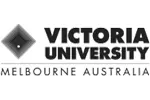
Bachelor of Early Childhood Education and Leadership, BA, Victoria University
Australia . Cricos: 00124K
- Study options for Bachelor of Early Childhood Education and Leadership
- About Bachelor of Early Childhood Education and Leadership
Courses you may be interested in at other institutions
Other courses at victoria university, study options for this course.
| BA | Full-time | 4 years | find out | find out | AUD 13500 per semester |
About Bachelor of Early Childhood Education and Leadership, BA - at Victoria University
Notes about fees for this course.
Victoria University (VU) is proud to support hundreds of international scholarship recipients and sponsored students.
We have a range of externally-funded and university-funded scholarships to support students. Our courses for international students include vocational education and training (VET) through to undergraduate and postgraduate coursework and higher degrees by research.
Entry requirements for this course
Contact Victoria University to find course entry requirements.
Below are some suggested courses at other providers that you may also be interested in:
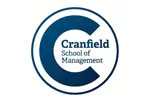
Senior Leader Executive Program MSc
Cranfield School of Management
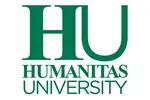
Medicine and Surgery MD
Humanitas University, Medicine and Surgery
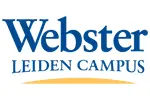
Psychology with Emphasis in Counseling Psychology MA
Webster Leiden Campus
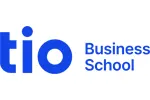
International Tourism Management BA
Tio Business School
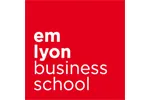
Sports Industry Management MSc
emlyon business school
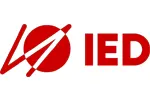
Fashion Events and PR Summer School
IED – Istituto Europeo di Design
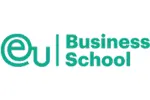
Business Bridging Program Foundation
EU Business School, Geneva
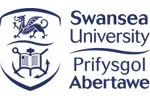
Development Studies MPhil, PhD
Swansea University
Foundation and Pathway Courses at other institutions
If you do not meet the entry requirements for this course then consider one of these courses from another institution:
Total Design
Business Bridging Program
Applied Business Management (Coleg Cambria)
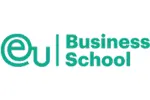
EU Business School, Barcelona
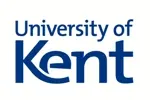
International Foundation Programme
University of Kent
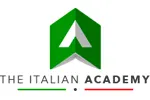
International Foundation Year Program
The Italian Academy
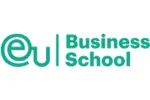
English Foundation Program
EU Business School Digital
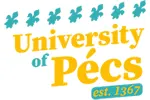
Preparatory Courses in English for Degree Studies (Medical, Business, Architecture and Engineering, Psychology, English and American Studies)
University of Pécs
There are 100 other courses listed from Victoria University. A selection of these are displayed below:

Advanced Diploma in Hospitality Management Advanced Diploma
Victoria University
Associate Degree in Hospitality and Hotel Management Advanced Diploma
Bachelor of Arts BA
Bachelor of Biomedical and Exercise Science BA
Bachelor of Biomedical Science BA
Bachelor of Building Design BA
Bachelor of Building Surveying BA
Bachelor of Business BA
Related Information
See other universities in Melbourne
Find out more about studying in Australia
Find an early childhood education course
Explore accredited in-person and online early childhood education courses on our interactive map.
Explore your options and start your journey to a fulfilling career in early childhood education.
Unsure if the course you're interested in is offered by a university or TAFE? Use our filtering options to find accredited early childhood education courses from both universities and TAFEs across Victoria.
View a in a full screen map .
Spreadsheet with course data
Download details about early childhood courses and providers in a spreadsheet. This data is used to populate the interactive map.
Online early childhood teaching courses at leading universities
Discover early childhood courses available for online study. You can now pursue your passion for early childhood education from anywhere in Victoria.
| Institution | Course |
|---|---|
| Australian Catholic University | |
| Australian Catholic University | |
| Australian Catholic University | |
| Charles Darwin University | |
| Charles Darwin University | |
| Charles Sturt University | |
| Curtin University (Open Universities) | |
| Curtin University (Open Universities) | |
| Deakin University | |
| Deakin University | |
| Deakin University | |
| Deakin University | |
| Federation University | |
| Federation University | |
| Federation University | |
| La Trobe University | |
| Montessori World Education Institute (Aust) Inc. | |
| Royal Melbourne Institute of Technology | |
| Swinburne University of Technology | |
| Swinburne University of Technology | |
| University of Melbourne | |
| University of Tasmania | |
| Victoria University | |
| Victoria University |
Financial support to study and work in early childhood
Financial support is available for people looking for a rewarding career in the early childhood sector.
Become an early childhood teacher or educator
Find out why you should build a career in early childhood education. Learn about scholarships, incentives and financial support.
Updated 9 August 2024
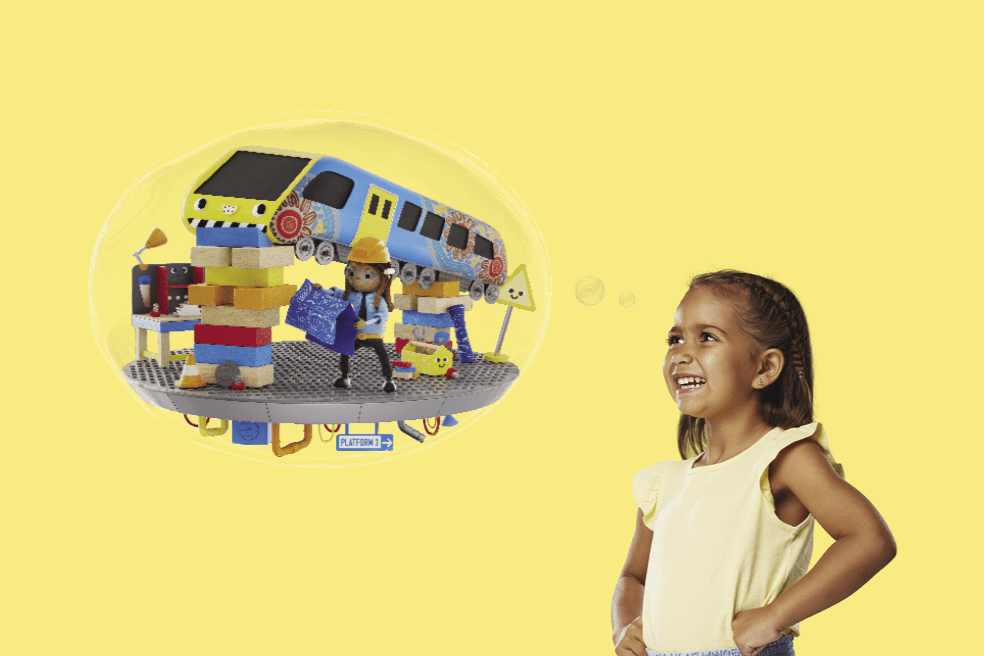
The Best Start, Best Life reforms
We're investing $14 billion in Victoria’s early childhood education, providing access to Free Kinder for all 3- and 4-year-old children.
Bachelor of Early Childhood Education (Birth to Five Years)
Top 50 Globally in education (#46) and third in Australia. (Shanghai Ranking, Global Ranking of Academic Subjects 2021)
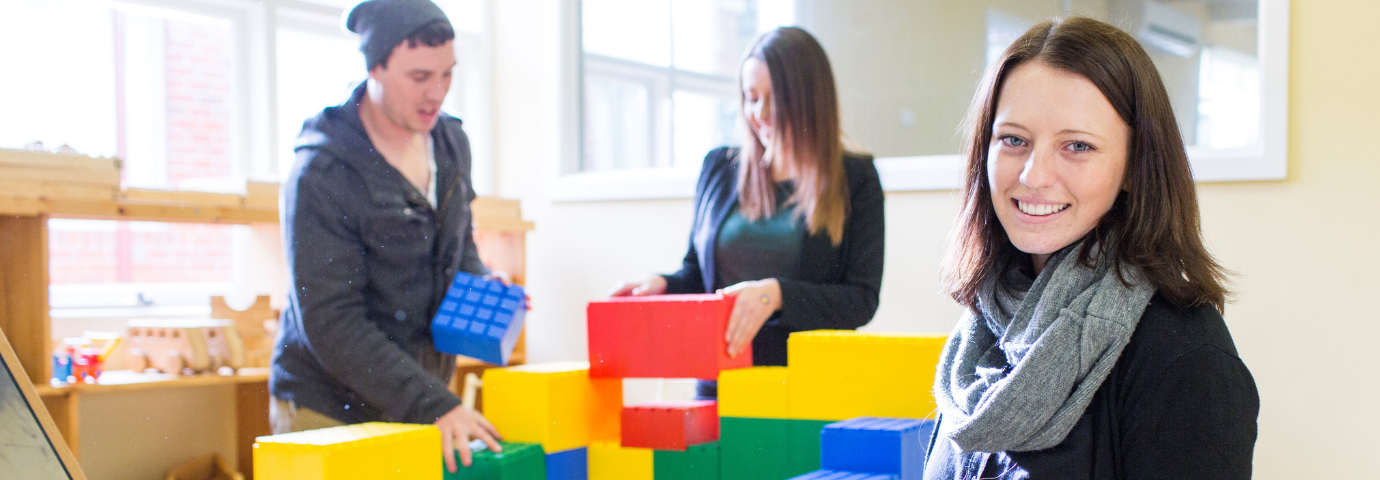
Course information for - 2025 entry Are you an Domestic International
Offered at 4 locations location brisbane melbourne online mt strathfield.
The Bachelor of Early Childhood Education (Birth to Five Years) is aimed at those students dedicated to a career teaching in a birth to five setting.
Developed in response to workforce needs in the early childhood sector, the course can be undertaken as a natural progression for graduates of the Diploma of Early Childhood Education and Care or as a standalone course. Graduates of the course will have a strong grounding in early childhood curriculum and pedagogy.
We also recognise that an early childhood educator is likely to teach a diverse range of students across the course of their career. Our students will be equipped with the knowledge and skills to respond to this diversity.
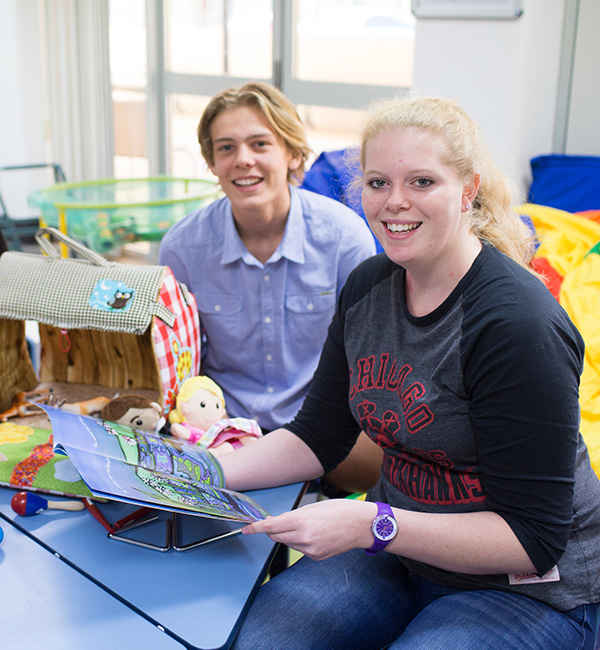
Professional experience
You will be required to complete 85 days – Year 1: Community Engagement minimum 35 hours; Year 2: 15 days, 15 days, 15 days; Year 3: 15 days, 5 days; Year 4: 20 days.
Work placement
Supervised professional experience is at the heart of all our pre-service teacher education courses and the faculty will find appropriate placements to suit the needs of your course. You’ll be placed in relevant prior-to-school settings at different stages of your course to ensure your practical experience evolves alongside your theoretical knowledge base. Our placement program also gives you diverse educational experiences, so you’ll be in a better position to choose your future career path.
Professional recognition
Graduates are eligible for registration as an early childhood teacher in government, independent, Catholic, and other faith-based schools and a range of early childhood education settings.
The course is approved by the Australian Children’s Education and Care Quality Authority, (ACECQA) as an Early Childhood Teacher qualification.
This course will not lead to primary or secondary teacher registration.
Our graduates have pursued careers in:
- early childhood education
- kindergarten teaching
- policy development
Employment rates
84% of Early Childhood and Primary Teaching students are employed full-time within 4 months of graduating. (2019 Quality Indicators for Learning and Teaching (QILT) Graduate Outcomes Survey )
Course details
Course structure.
To complete the Bachelor of Early Childhood Education (Birth to Five Years), a student must complete 320 credit points (cp).
View course rules
Please note : Course maps are subject to change.
Commencing Semester 1
Year 1 semester 1.
All 3 Units must be completed. EDES103 includes Community Engagement (minimum of 35 hours)
- Early Childhood Units EDSI168 Science, Inquiry and Sustainability 10 cp
- Early Childhood Units EDMA163 Exploring Mathematics and Numeracy 10 cp
- Early Childhood Units EDEN100 Foundations of Literacy 10 cp
Year 1 Semester 2
- Early Childhood Units EDEC100 Health, Family and Young Learner Wellbeing in the Early Years 10 cp
- Early Childhood Units EDEN102 Children's Literature for Early Reading 10 cp
Year 2 Summer Term
- Core Curriculum Units Core Curriculum Unit 1 See the ACU Core Curriculum page for details 10 cp
Year 2 Semester 1
Professional Experience: 15 days: 3-5 years
Professional Experience: 15 days: 3-5 years, same setting as EDET100
- Early Childhood Units EDEN290 English Curriculum, Pedagogy and Assessment 1 (B-8) 10 cp
Year 2 Semester 2
- Early Childhood Units EDAR164 Nurturing Creativity in Young Children 10 cp
- Early Childhood Units EDEC366 Positive Environments for Learning and Development 10 cp
- Early Childhood Units EDMA290 Mathematics Curriculum, Pedagogy and Assessment 1 (B-12) 10 cp
Year 3 Semester 1
- Education Studies Units EDES101 Educational Thought 10 cp
- Education Studies Units EDES104 Digital Cultures and Capabilities 10 cp
EDTE260 offered in Winter Term.
- Early Childhood Units EDEC310 Young Children's Social and Emotional Competence in Early Childhood Contexts 10 cp
Year 3 Semester 2
Professional Experience: 15 days: Birth- 35 months– same setting as EDEC211
- Core Curriculum Units Core Curriculum Unit 2 See the ACU Core Curriculum page for details 10 cp
- Early Childhood Units EDEC461 Pedagogy of Relationships in Early Childhood 10 cp
Professional Experience: 5 days, Birth-35 months - same setting as EDET211
Year 4 Sum/PT1/PT2
- Education Studies Units EDES300 Comparative Education: Local and Global Contexts OR Education Studies Units EDFX204 Engaging with Global Communities Personal Professional Learning in International Education Contexts 10 cp
- Early Childhood Units EDEC314 Leadership, Management, Administration and Advocacy 10 cp
Year 4 Semester 1
- Effective Teaching Units EDET300 Effective Teaching 4: Students with Disability and Inclusive Education 10 cp
- Early Childhood Units EDAR460 Arts as Meaning in Early Childhood 10 cp
Year 4 Winter Term
- Effective Teaching Units EDET460 Effective Teaching 5: Understanding and Implementing Assessment and Data Informed Practice 10 cp
- Education Studies Units EDES302 Professional Communication 10 cp
Year 4 Semester 2
Professional Experience: 20 days: birth-5
- Early Childhood Units EDEC360 Professional Identities in Early Childhood 10 cp
Not all campuses will necessarily offer three units in every semester; students will need to choose units from the available options
Commencing Semester 2
All 3 Units must be completed. EDES103 includes Community Engagement (Minimum of 35 hours)
- Core Curriculum Units Core Curriculum Unit 1 See the ACU Core Curriculum page for details 10 cp
Professional Experience: 5 days 3-5 years
Professional Experience: 15 days: 3-5 years same setting as EDET100
Professional Experience: 5 days: birth-35 months - same setting as EDET211
EDET260 offered in Winter Term.
(Pre: Core Curriculum Unit 1)
Year 4 Summer Term
Year 5 sum/pt1/pt2, year 5 semester 1.
Not all campuses will necessarily offer four units in every semester; students will need to choose units from the available options
Diploma credit - Commencing Semester 1
Students who have completed the Diploma of Early Childhood Education and Care (CHC50113/CHC50121) will be eligible for credit for the following units on entering the Bachelor of Education (Birth to Five Years). To receive this credit, you will need to complete a Credit Application form and submit this to your Course Administrators. After the credit is applied you will have the equivalent of three years of full-time study (260 credit points) remaining to complete the Bachelor of Early Childhood Education (Birth to Five Years)
- EDES103 – Understanding Learners and their Contexts (10cp)
- EDEC100 – Health, Family and Young Learner Wellbeing in the Early Years (10cp)
- EDEC211 – Infant and Toddler Studies (10cp)
- EDEC310 – Young Children’s Social and Emotional Competence in Early Childhood Contexts (10cp)
- EDEC314 – Leadership, Management, Administration and Advocacy (10cp)
- EDET300 – Effective Teaching 4: Diverse Learning and Inclusive Education (10cp)
- EDAR164 – Nurturing Creativity in Young Children (10cp)
- Specified Elective: EDEC313 – Health and Wellbeing in the Early Years (10cp)
Both units must be completed
All 3 units must be completed
Professional Experience:15 days: 3-5 years
Professional Expereince:15 DAYS: 3-5 years, same setting as EDET100
Year 3 Sum/PT1/PT2
- Core Curriculum Units Core Curriculum Unit 2 See the ACU Core Curriculum page for details 10 cp
Year 3 Winter Term
Diploma credit - commencing semester 2.
- Education Studies Units EDES100 Understanding Learning and Teaching 10 cp
- Education Studies Units EDES105 Aboriginal and Torres Strait Islander Knowledges, Histories and Cultures 10 cp
Professional Experience: 3-5 years, same setting as EDET100
Professional Experience: 20 days: birth -5
Accelerated (26 Months) - Commencing Professional Term 3
Year 1 prof term 3.
- Education Studies Units EDES103 Understanding Learners and Their Contexts 10 cp
Year 1 Prof Term 5
Year 1 prof term 6, year 1 prof term 8, year 2 prof term 1, year 2 prof term 3, year 2 prof term 5.
- Early Childhood Units EDTE260 Technologies Curriculum, Pedagogy and Assessment in the Early Years 10 cp
- Education Studies Units EDES300 Comparative Education: Local and Global Contexts 10 cp
Year 2 Prof Term 8
Year 3 prof term 1, year 3 prof term 3, accelerated (26 months) - commencing professional term 6.
- Early Childhood Units EDEC111 Early Years Curriculum and Play-Based Pedagogies 10 cp
- Effective Teaching Units EDET211 Effective Teaching 3 Positive Environments to Engage Young Learners 10 cp
Year 3 Prof Term 5
Graduate statement.
As an ACU graduate you have personal insight founded on an understanding of who you are as a professional, a citizen and a scholar. You embrace change and growth through critical self-awareness and learning autonomy. You are empowered to seek truth and meaning, drawing on the principles of justice, equity, and the dignity of all human beings.
As an ACU graduate you value human dignity and diversity. This appreciation is founded on deep reflection, and empathy. You have experience of Indigenous Knowings and perspectives and can engage respectfully when working alongside Australia's First Peoples. You can connect with people and cultures and work with community in ways that recognise the dignity of the human person and all cultures
Imagination
As an ACU graduate you utilise imagination and innovation to solve problems. You critically analyse information from a range of sources to creatively solve practical problems and use critical thinking to make decisions and advance the common good. You appreciate the role of innovation and creative thinking in developing a better future for each person and community.
As an ACU graduate you recognise your responsibility to work for social justice and a sustainable world founded on a commitment to human dignity and the common good. You lead change through respectful collaboration and effective communication of ideas to diverse peoples, groups and communities in local and global contexts. You are empowered to positively impact your profession and the community.
AQF framework
Exit points.
A student who has successfully completed the following requirements may exit from the course with that qualification:
- Non-Award Certificate in Educational Studies
- Diploma in Educational Studies (Tertiary Preparation)
- Bachelor of Educational Studies
Additional course information
The course includes an articulation pathway for graduates of the AQF level 5, Diploma of Early Childhood Education and Care, providing credit recognition and, for selected cohorts, direct admission into year two of the course
Overseas study available
Our undergraduate education students can undertake professional experience and community engagement in locations like Kiribati and Solomon Islands. Students work with communities to raise the level of student engagement and offer professional development to local teachers. This intensive professional learning for teachers increases flexibility and adaptability as an educator and provides a global perspective for a better understanding of differences within classrooms.
Entry requirements
An applicant must also comply with the Admission to Coursework Programs Policy that includes meeting a minimum ATAR requirement.
To be eligible for admission to the course, an applicant must meet any additional prerequisite requirements imposed by state jurisdictions.
International applicants need to meet the English Language Proficiency requirements as defined in the Admission to Coursework Programs Policy .
To be eligible for admission to the course, an applicant must have completed at year 12 level, or equivalent:
| State | Prerequisites |
|---|---|
New South Wales | Nil
|
Queensland | English (Units 3 & 4, C) General Mathematics |
Victoria | English: Units 3 and 4 – a study score of at least 30 in English (EAL) or 25 in any other English Mathematics: Two units of Mathematics (any) |
Disclaimer: The course entry requirements above are for 2025 Admission. Refer to your relevant Tertiary Admission Centre website for future years' entry requirements.
View transparency admission information
Applicants with recent secondary education
You’ll need to meet the minimum entry requirements and subject prerequisites for your chosen course.
If your school result was affected by circumstances outside of your control, such as financial hardship, illness, disability or a challenging home environment, you may qualify for an access scheme. You can apply through your TAC as part of your application process.
Learn more about access schemes
Applicants with vocational education and training (VET) study
You’ll need to meet the minimum entry requirements and subject prerequisites for your chosen course.
For current year 12 students
If you’re a current Year 12 applicant you can be given a selection rank separate from, and in addition to, your ATAR if you’ve completed a competency-based and graded AQF Certificate III or above.
For non-school leavers
If you’ve completed, or are completing a competency-based AQF Certificate IV or AQF diploma you will be assigned a selection rank by your local Tertiary Admission Centre (TAC). This is an entry score based on your individual qualifications and achievements.
ACU has partnerships with TAFE and many private education providers. If you have completed a qualification with one of these partners or with ACU College, you may be eligible for guaranteed entry and/or credit into a related ACU degree. Please apply through your local TAC and then submit a credit application for your previous study.
Applicants with higher education study
If you have completed at least two units of AQF -recognised study at bachelor level or above, you’ll be assigned a selection rank based on your study level, duration and grade point average that will be applied during the admission process.
If your previous study has equipped you with knowledge, skills or experiences that align with the learning outcomes of units in your new course you may be able to apply for recognition of prior learning and you may be able to complete your course sooner.
Learn more about recognition of prior learning
Applicants with work and life experience
You’ll need to meet the minimum entry requirements and subject prerequisites for your chosen course.
If you have no formal education qualifications you may be eligible for a selection rank based on your work, life or service experience.
- If you’ve been in paid employment, relevant to the course you’re applying for, for a minimum of six months full-time (or equivalent), this work may be assessed for your selection rank.
- If you’re 21 years or older you can sit the Skills for Tertiary Admissions Test (STAT) through your local TAC.
- You can apply for an ACU bridging course. Our bridging courses allow you to transition back into studying and can give you a head start on the relevant undergraduate degree.
- If you have served in the defence force, your rank and time in service may contribute to your selection rank.
Find your path into study
Adjustment factors
If you’re currently completing Year 12 you may be eligible for adjustment factors that can boost your rank and help you get into your desired course.
Adjustment factors may be applied to your TAC application if you study particular subjects, attend schools geographically close to our campuses or in certain regional areas, apply as an elite athlete or performer or meet certain other criteria.
Learn more about adjustment factors
Inherent requirement
There are essential components of a course or unit that demonstrate the capabilities, knowledge and skills to achieve the core learning outcomes of that course or unit. You will need to be able to meet these inherent requirements to complete your course.
Learn more about inherent requirements for your course and how they affect you
Pathways into course for current or recent Year 12 students
If you can’t meet the ATAR requirement for your choice of course and you’re currently completing Year 12 or finished Year 12 in the two years previously, we have entry programs to get you where you want to be.
Alternatively, you may be able to complete a diploma or bridging course relevant to your desired course:
- ACU Diploma in Educational Studies (Tertiary Preparation)
Understand your pathway options
Pathways into course for applicants with previous study and/or life experience
Are you applying to ACU as a non-school leaver?
By that we mean, you’re not currently completing Year 12 and haven’t completed it in the two years previously. If the answer is yes and your selection rank isn’t enough to meet the requirements for your desired course you still have a number of options to help you achieve your study goals.
If you’re over 21, you can sit the Skills for Tertiary Admissions Test (STAT) , or you can complete a diploma or bridging course relevant to your desired course.
Explore the pathways to your future
Further study
Bachelor Degree graduates may be eligible for entry into further postgraduate coursework degree programs.
Course costs
All costs are calculated using current rates and are based on a full-time study load of 40 credit points (normally 4 units) per semester.
A student’s annual fee may vary in accordance with:
- the number of units studied per semester;
- the choice of major or specialisation; and
- elective units.
The University reviews fees annually.
Payment options
You should be able to concentrate on getting good marks instead of worrying about how you’ll pay your fees. We have a number of options that can help you ease the financial burden, including government assistance, scholarships and income support.
Explore your options
Scholarships
You could be eligible for one of the hundreds of scholarships we award each year to help students from across the university with the cost of studying, accommodation or overseas study opportunities. Some of our scholarships are awarded on the basis of merit, but these aren’t just for the academically gifted; ACU also recognises excellence in community engagement and leadership. We also offer a range of scholarships for those who may be struggling financially or who have faced other barriers to accessing education.
Search our scholarships
Bachelor of Early Childhood Education Birth to Five Years
Apply through QTAC
QTAC code 113531
Direct application
How to apply, domestic applicants.
Deferment is available for one year. Find out more about deferment: Deferment Information .
Staff Profile

Dr Debra Phillips
Campus course coordinator (sydney).
Dr Debra Phillips is an Education lecturer and campus course co-ordinator (Blacktown, North Sydney) at Australian Catholic University. Her doctorate awarded in 2020, an autoethnographic analysis of suicidality, provided background for her ongoing work into teachers’ mental health. Dr Phillips’ current research and writing explores how teachers manage and negotiate workload stressors to continue teaching. Dr Phillips comes from a background of school-based teaching practice and a background of post-graduate study in education, gender studies, narrative and theology which has provides an informed position for her lectures in educational psychology, teachers’ mental health and disability education.
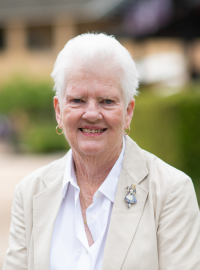
Dr Carmel Turner
1st year course coordinator (brisbane).
Dr Carmel Turner is an Education lecturer in literacy and literature at the Australian Catholic University. She is the Campus Course Coordinator (Brisbane) for the Bachelor of Education (primary), Bachelor of Education (Early Childhood and primary) and Bachelor of Early Childhood (B-5). Dr Turner's area of research focuses on using picture books in the classroom for literacy development, inspired from over 30 years experience teaching in primary schools.
Have a question?
We're available 9am–5pm AEDT, Monday to Friday If you’ve got a question, our AskACU team has you covered. You can search FAQs, text us, email, live chat, call – whatever works for you.
Live chat with us now
Chat to our team for real-time answers to your questions.
Visit our FAQs page
Find answers to some commonly asked questions.
- News and articles
- Find us Find nearest IDP offices IDP Australia IDP Bahrain IDP Bangladesh IDP Cambodia IDP Canada IDP China IDP Egypt IDP Ghana IDP Hong Kong IDP India IDP Indonesia IDP Iran IDP Jordan IDP Kenya IDP Korea IDP Kuwait IDP Lebanon IDP Malaysia IDP Mauritius IDP Middle East IDP Nepal IDP New Zealand IDP Nigeria IDP Oman IDP Pakistan IDP Philippines IDP Saudi Arabia IDP Singapore IDP Sri Lanka IDP Taiwan IDP Thailand IDP Turkey IDP UAE IDP Vietnam IDP Corporate
- Where we operate
- Africa IDP Egypt IDP Ghana IDP Kenya IDP Nigeria
- Europe IDP Turkey
- Middle East IDP Bahrain IDP Iran IDP Jordan IDP Kuwait IDP Lebanon IDP Middle East IDP Oman IDP Pakistan IDP Saudi Arabia IDP UAE
- North America IDP Canada
- North Asia IDP Hong Kong IDP Korea IDP Taiwan
- Oceania IDP Australia IDP New Zealand
- South Asia IDP Bangladesh IDP India IDP Mauritius IDP Nepal IDP Sri Lanka
- South East Asia IDP Cambodia IDP Indonesia IDP Malaysia IDP Philippines IDP Singapore IDP Thailand IDP Vietnam
- New Zealand
- United Kingdom
- United States
- Courses by subject
- Scholarships
- Vocational (VET)
- University Preparation
- Undergraduate
- Postgraduate and Masters
- History of IDP
- Frequently asked Questions
- Arrival services
- Money transfer
- Student health cover
- Student banking
- Accommodation
- Find nearest IDP offices
- IDP Australia
- IDP Bahrain
- IDP Bangladesh
- IDP Cambodia
- IDP Hong Kong
- IDP Indonesia
- IDP Lebanon
- IDP Malaysia
- IDP Mauritius
- IDP Middle East
- IDP New Zealand
- IDP Nigeria
- IDP Pakistan
- IDP Philippines
- IDP Saudi Arabia
- IDP Singapore
- IDP Sri Lanka
- IDP Thailand
- IDP Vietnam
- IDP Corporate
- IDP Education /
- Colleges and Universities /
- Australia /
- Victoria University - Sydney /
- Bachelor of Early Childhood...
- Victoria University - Sydney

Bachelor of Early Childhood Education
At victoria university - sydney.
Qualification
- Bachelor Degree
6 Semester(s)
Next intake
30 September 2024
Entry Score
About the course
Become an in-demand early-childhood teacher, equipped with effective skills and practical experience, with a Bachelor of Early Childhood Education at Victoria University Sydney. Be part of the massive future growth expected in early childhood education, with over 10,600 new jobs expected to be added in the next five years. Your Bachelor of Early Childhood Education will prepare you for a rewarding career nurturing the development and wellbeing of children from birth to five years. As a degree-qualified early childhood teacher, youll- support young children with the important foundations to set them up for success in life, develop techniques for involving families as important contributors to the learning process, set children up for effective transitions to school. At VU, you will learn to support children to feel capable and confident. Youll build a strong sense of social justice, understand child development in the early years and develop ethical professional teaching practice that includes Indigenous perspectives.
- Scholarships View all scholarships
- Internships
Start dates and prices
Course fees are indicative and should be used as a guide. to get an accurate price.
Duration: 6 Semester (s)
Fees: AUD 31000
| Location | |
|---|---|
| July, 2024 | |
| September, 2024 | |
| September, 2025 | |
| July, 2025 | |
| July, 2024 | |
| September, 2024 | |
| September, 2025 | |
| July, 2025 |
How to apply
Entry requirements for victoria university - sydney, application deadline.
The application deadline isn't available Speak to an IDP counsellor for more detailed information
Further information
If you aren't eligible for the above entry requirements, you might ant to explore pathway options at Victoria University - Sydney . If you want to find out more, speak to our counsellors.
Career outcomes
Reviews and rankings
The world ranking.
401 st / 1250
What our students think
We’ve haven’t received any reviews for this institution yet.
CIRCOS_CODE : 115485G
More about Victoria University - Sydney
Calculate your cost of living in
Recommended for you
- Scholarship
- THE World Ranking:180
- Dual Degree
- Sydney , Australia
- Next intake:02/2025
- Entry Score: IELTS 7.5
- AUD37100 (2024)
- THE World Ranking:251
- Bundoora , Australia
- Next intake:03/2025
- AUD33840 (2024)
- AUD36900 (2024)
- Perth , Australia
- Next intake:07/2024
- AUD37679 (2024)
- AUD35904 (2024)
Your action plan
Shortlist your courses.
Choose the best three courses you’re most likely to pursue.
Check your eligibility
Get an instant in-principle offer for courses with the IDP FastLane tag.
Apply through IDP Live
Fill out the form once and use it to apply to multiple courses.
How does IDP FastLane work?
With the FastLane 'Offer in Principle', you'll know in minutes if you'll be accepted!
Select an institution and course
Create your academic profile
Submit your application for an 'Offer in Principle'
Your chosen institution(s) will send you a decision in minutes!
Get ready to apply with an expert counsellor
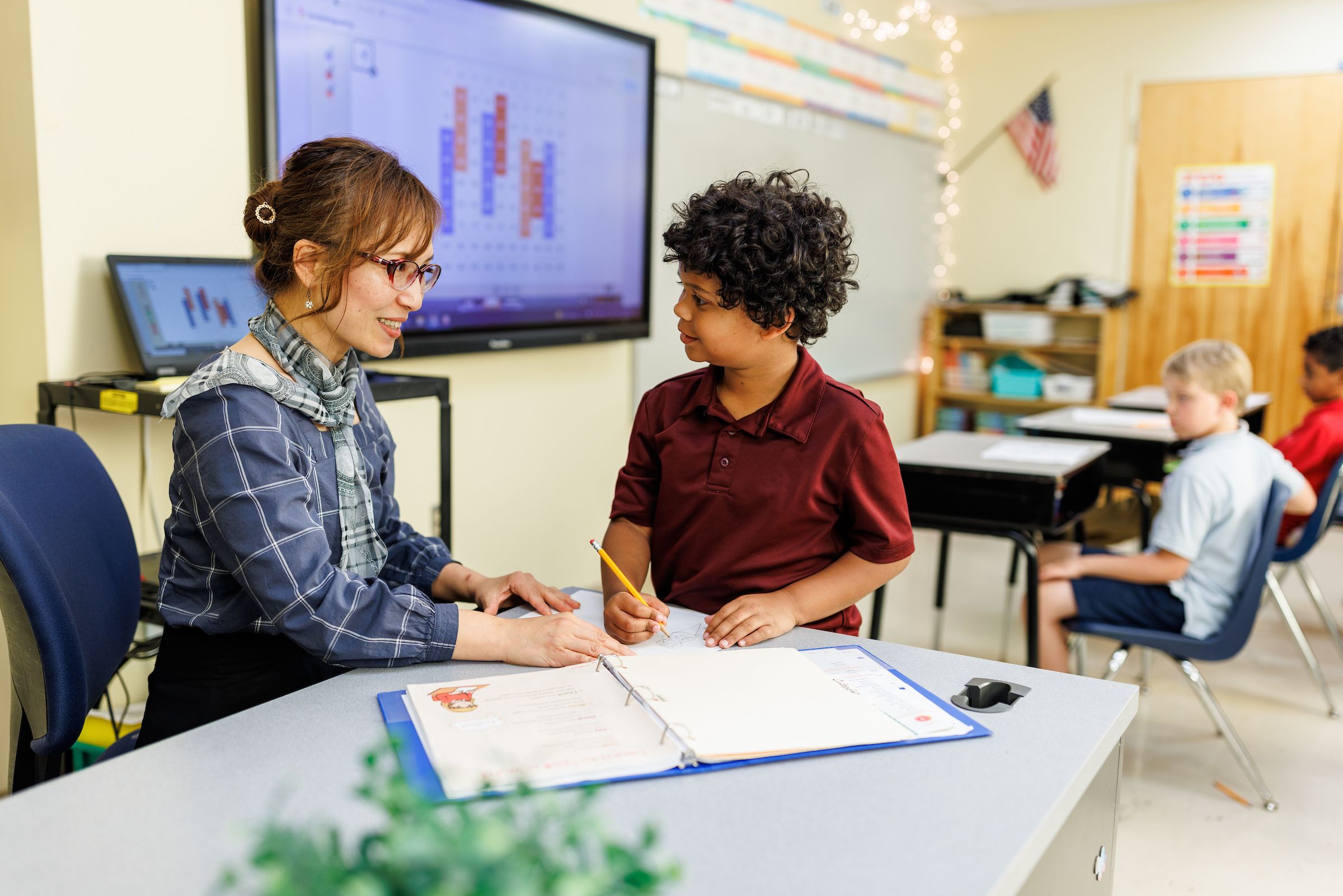
Online Degrees in Education Draft
Learn More About The Program
Request information
By submitting contact information through this form, I agree that Liberty University and its affiliates may call and/or text me about its offerings by any phone number I have provided and may provide in the future, including any wireless number, using automated technology.
Message and data rates may apply. For additional information, text HELP to 49595 or 49596. You may opt-out at any time by sending STOP to 49595 or 49596. Visit for Terms & Conditions and Privacy Policy .

Let's find your education degree
Want more information?
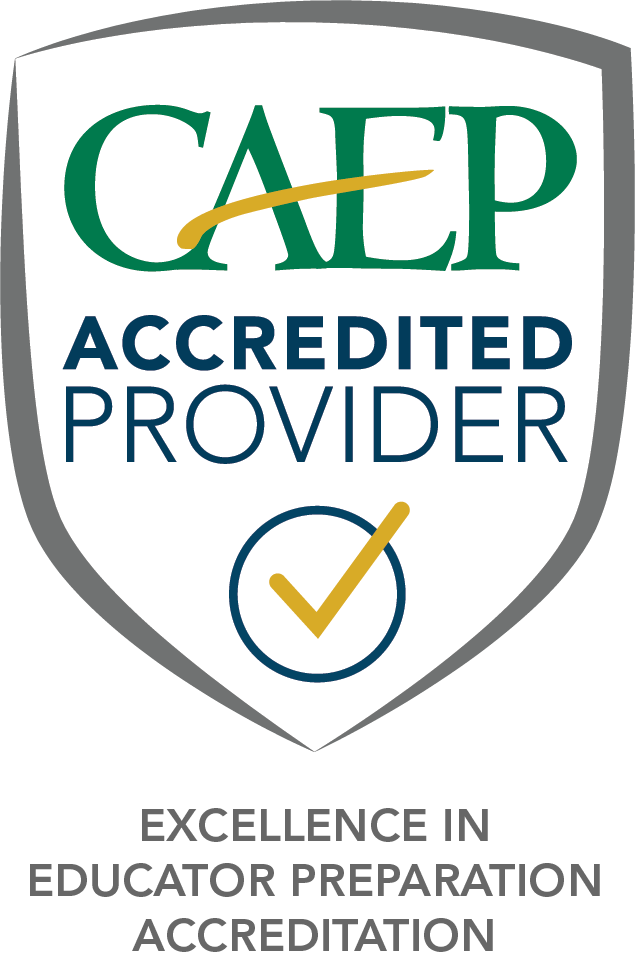
All of our School of Education initial and advanced licensure programs are accredited by CAEP.
Associate Degrees
- Early Childhood (Non-licensure)
- Education (Non-licensure)
Bachelor’s Degrees
- Business Education
- Elementary Education
- Elementary Education – Middle Grades English
- Elementary Education – Middle Grades Math
- Elementary Education – Middle Grades Science
- Elementary Education – Middle Grades Social Science
- Elementary Education – Special Education
- English as a Second Language (ESL)
- English Education
- Mathematics Education
- Middle Education – English
- Middle Education – Math
- Middle Education – Science
- Middle Education – Social Sciences
- Physics Education
- Physics Education – Earth Science
- Social Studies Education
- Special Education
- Bachelor of Science (B.S.) in Early Childhood Education Interdisciplinary Studies (Non-licensure)
- Bachelor of Science (B.S.) in Elementary Education Interdisciplinary Studies (Non-licensure)
- Bachelor of Science (B.S.) in Special Education Interdisciplinary Studies (Non-licensure)
- Bachelor of Science (B.S.) in Teaching English as a Second Language (TESL) (Non-licensure)
Master’s Degrees
- Master of Arts in Educational Studies
- Elementary Education ( 36-credit-hour or 45-credit-hour )
- Elementary Education – Special Education General Curriculum
- Mathematics
- Social Studies
- Biology Education
- Chemistry Education
- Computer Science Education
- Earth Science
- Engineering Education
- English as a Second Language
- Family and Consumer Sciences Education
- Health and Physical Education
- Music Education – Instrumental
- Music Education – Vocal/Choral
- Spanish Education
- Theatre Arts Education
- Visual Arts Education
- Special Education – Adapted Curriculum with CTE Add-On
- Special Education – Early Childhood Education
- Special Education – General Curriculum
- Special Education – Adapted Curriculum and Early Childhood Special Education
- Special Education – General Curriculum with CTE Add-On
- Special Education – Early Childhood Special Education and General Curriculum with CTE Add-On
- Special Education – General Curriculum and Adapted Curriculum with CTE Add-On
- M.A.T. to Education Specialist (Ed.S.) – Elementary Education Curriculum
- M.A.T. to Education Specialist (Ed.S.) – Middle Education Curriculum
- M.A.T. to Education Specialist (Ed.S.) – Secondary Education Curriculum
- Master of Arts (M.A.) in Teaching English as a Second Language (TESL)
- Administration and Supervision *
- Early Childhood Education
- Educational Technology and Online Instruction
- Foreign Language Education
- General Education
- Gifted Education
- Health and Wellness
- Middle Grades
- Student Services
- Urban Education
- Educational Leadership
- Instructional Design and Technology
- Student Affairs
- Math Specialist Endorsement *
- Reading Specialist Endorsement *
- School Counseling *
- Special and Gifted Education: Twice Exceptionalities
Postgraduate Degrees
- Administration and Supervision – Educational Leadership *
- Educational Psychology
- Online Teaching and Learning
- Secondary Education
- Educational Research
- Assessment and Evaluation
Doctoral Degrees
- Middle Grades Education
- Organizational Leadership
- Curriculum and Instruction
- Doctor of Philosophy (Ph.D.) in Educational Leadership
- Doctor of Philosophy (Ph.D.) in Educational Research
- Educational Law
- Bachelor of Education in Business Education *
- Elementary Education *
- Elementary Education – Middle Grades English *
- Elementary Education – Middle Grades Math *
- Elementary Education – Middle Grades Science *
- Elementary Education – Middle Grades Social Science *
- Elementary Education – Special Education *
- Bachelor of Education in English as a Second Language (ESL) *
- Bachelor of Education in English Education *
- Bachelor of Education in Mathematics Education *
- Bachelor of Education in Middle Education – English *
- Bachelor of Education in Middle Education – Math *
- Bachelor of Education in Middle Education – Science *
- Bachelor of Education in Middle Education – Social Sciences *
- Bachelor of Education in Physics Education *
- Bachelor of Education in Physics Education – Earth Science *
- Bachelor of Education in Social Studies Education *
- Bachelor of Education in Special Education *
- Bachelor of Science in Early Childhood Education Interdisciplinary Studies (Non-licensure)
- Bachelor of Science in Elementary Education Interdisciplinary Studies (Non-licensure)
- Bachelor of Science in Special Education Interdisciplinary Studies (Non-licensure)
- Bachelor of Science in Teaching English as a Second Language (Non-licensure)
- Middle Education *
- Secondary Education *
- Special Education – Adapted Curriculum *
- Special Education – Early Childhood Education *
- Special Education – General Curriculum *
- Elementary Education – Special Education General Curriculum *
- Special Education – Adapted Curriculum and Early Childhood Special Education *
- Special Education – Early Childhood Special Education and General Curriculum *
- Special Education – General Curriculum and Adapted Curriculum *
- Elementary Education Curriculum *
- Middle Education Curriculum *
- Secondary Education Curriculum *
- Master of Arts in Teaching English as a Second Language (TESL)
- Master of Education (M.Ed.) – Special and Gifted Education: Twice Exceptionalities
- Elementary Education (36 hrs.)
- Elementary Education (45 hrs.)
- Elementary Education – Special Education General Curriculum (45 hrs.)
- Adapted Curriculum with CTE Add-On
- Adapted Curriculum and Early Childhood Special Education
- Early Childhood Special Education
- Early Childhood Special Education and General Curriculum with CTE Add-On
- General Curriculum
- General Curriculum with CTE Add-On
- General Curriculum and Adapted Curriculum with CTE Add-On
- Elementary Education Curriculum
- Middle Education Curriculum
- Secondary Education Curriculum
- Education Specialist in Administration and Supervision – Educational Leadership (Ed.S.) *
- Education Specialist in Educational Leadership (Ed.S.)
- Education Specialist in Educational Research (Ed.S.)
- Education Specialist in Instructional Design and Technology (Ed.S.)
- Education Specialist in Special Education (Ed.S.)
- Doctor of Education in Administration and Supervision – Educational Leadership (Ed.D.) *
- Doctor of Education in Educational Leadership (Ed.D.)
- Doctor of Education in Special Education (Ed.D.)
- Doctor of Philosophy in Educational Leadership (Ph.D.)
- Doctor of Philosophy in Educational Research (Ph.D.)
*Accredited by the Council for the Accreditation of Educator Preparation (CAEP)
Online Degrees in Education
Tomorrow’s leaders are today’s students, and teachers are the ones who inspire them. When you become a teacher, you earn the privilege of influencing the future every day. And an associate, bachelor’s, master’s, or doctoral degree in education will increase your potential for making a lasting impact on your students.
Liberty University’s online programs in education will help you inspire students in your classroom, school, or university with confidence. Whether you’re a teacher looking to further your career through formal credentialing or are wanting to start a rewarding career in the field of education, Liberty University’s online education degrees will equip you with the in-demand skills, knowledge, and tools you need to prepare students for success in the classroom — and in life.
You’ll explore educational theories that underlie the learning process as well as real-world teaching methods that help you become a better teacher. You’ll also study the latest education technologies to engage your students in the classroom and the current trends in public, private, and Christian learning institutions. You’ll become a practice-focused educator who is effective — and valuable.
Whether you’re working toward your associate, bachelor’s, master’s, or doctoral degree, your credentials from Liberty University will equip you to reach new professional heights and shape a better world by championing what matters to you. And that’s what matters to us.


Potential Careers
- College professor
- Curriculum director
- Gifted education teacher
- Principal or vice principal
- School superintendent
- Special education teacher
- Teacher’s aide
Please note that not all education degrees lead to licensure and that state requirements for teaching vary by state. You can research your state’s licensure requirements here: https://www.liberty.edu/statelicensure/
Liberty’s institutional accreditation by the Southern Association of Colleges and Schools Commission on Colleges (SACSCOC) and its field-specific accreditation by the Council for the Accreditation of Educator Preparation (CAEP) for all School of Education initial and advanced licensure programs mean you can be confident that you are investing in an industry-recognized credential that will help you meet your goals.
What Are the Benefits of Earning an Education Degree at Liberty University?
- We are recognized by multiple institutions for our academic quality, affordability, and accessibility . Our commitment to excellence also helped us rank in the top 10% of Niche.com’s best online schools in America . Earning your online education degree from a nonprofit university with this kind of recognition can help set you apart from others in your field.
- Liberty University’s state-of-the-art online learning environment offers you a wide variety of learning methods, including simulations, recorded lectures, and digital collaboration tools as well as others that will help you engage with your studies and learn practical teaching skills.
- The majority of tuition for undergraduate, graduate, and doctoral programs has not increased in 9 years. While many other online colleges have raised tuition, Liberty has been able to keep costs low as a nonprofit university.
- You can complete your online education program in less time than you think, due to our 8-week format and 8 start dates per year.
- Licensure tracks are available with the necessary coursework and experience to meet state requirements.
Military Benefits
Service is important to us, so whether you’re currently serving in the Armed Forces, have served, or are married to someone who serves, we’re here to serve you. Liberty’s military benefits are available to:
- Active duty service members of the U.S. Armed Forces
- Reserve/National Guard
- Veterans/retirees
- Spouses of service members and veterans/retirees
- Current Department of Defense employees
We are proud to support you in your pursuit of a flexible and affordable online education by offering you the following benefits:
- Tuition discounts — $250 per credit hour for undergraduate courses , $275 per credit hour for graduate courses , and $275 per credit hour for Ed.D. and Ed.S. courses
- Additional discount for veterans who serve in a civilian capacity as a First Responder
- 8-week courses, 8 different start dates each year, and no set login times (may exclude certain courses such as practicums, internships, or field experiences)
- Potential college credit for military training for undergraduate programs
Military Discount for Doctoral Students
We want to help you find the doctoral degree you want — at a price you’ve earned. As a thank-you for your military service, Liberty University offers eligible current and former service members like you or your spouse multiple pathways to earn a doctoral degree for only $300/credit hour . Find out how you can take advantage of our unique military discount for doctoral students and reach the pinnacle of your profession — for less.
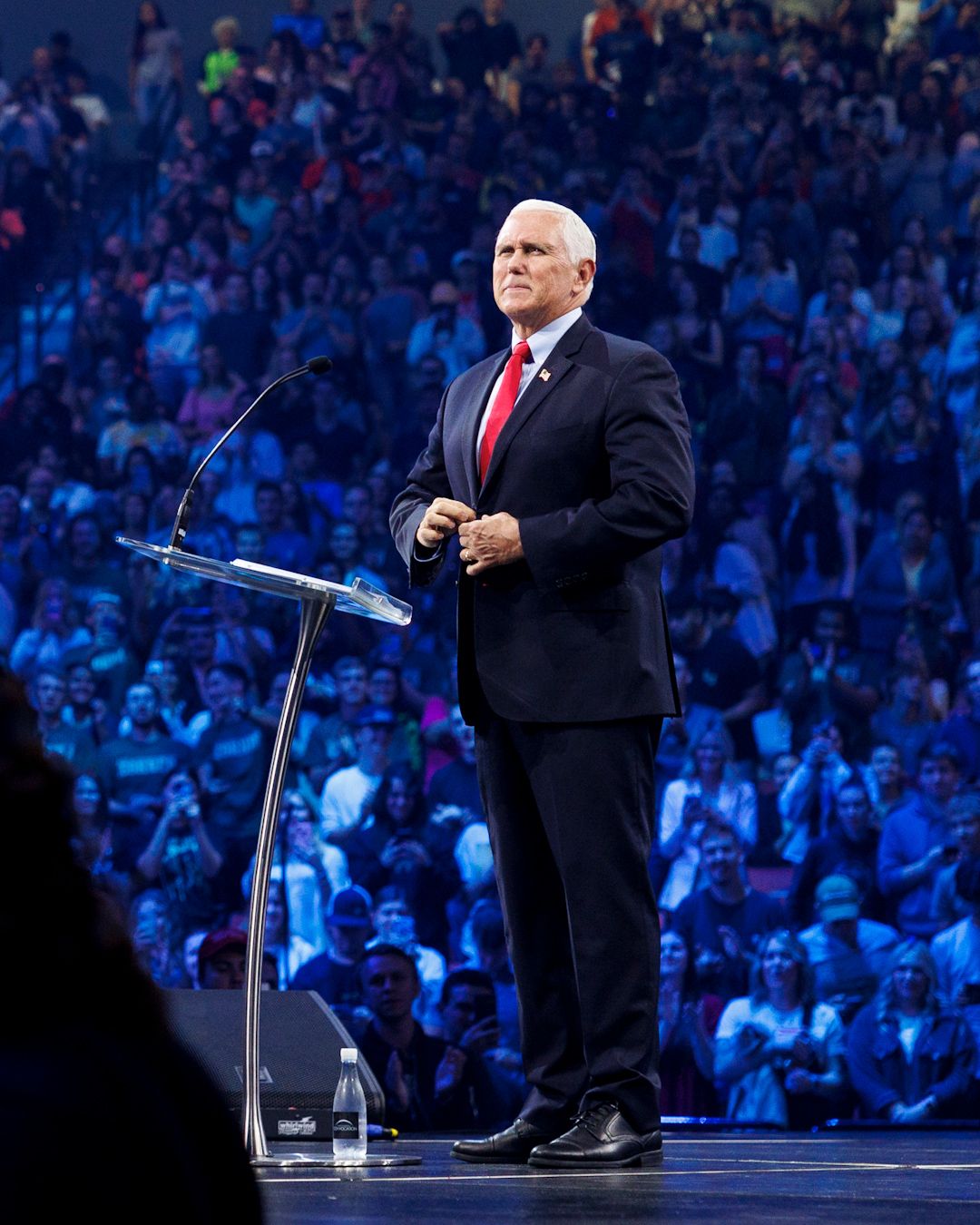
“In the times in which we’re living today, Liberty University’s mission , the mission of training up a generation of Champions for Christ in literally every occupation, has never been more important .”
FORMER VICE PRESIDENT MIKE PENCE
Experience That Matters to You
As an accredited Christian college with a 7,000-acre campus in Lynchburg, Virginia, Liberty University offers you an education that is both academically challenging and rooted in a biblical worldview.
At Liberty, you’ll benefit from 35+ years of learning, growing, adapting, and innovating for the distance learner — and more than a decade of researching the needs of the online student. You can be confident that we’ve taken the time to learn what’s important to you.
And what’s that?
- Affordability
- Accessibility
- Academic Quality
These important factors challenged us to find new financial solutions, get ahead of industry trends, and blaze trails into cutting-edge career fields — and it’s paid off. That’s the difference experience makes.
Ranked in the top 10% of Niche.com’s best online schools in America and recognized by multiple institutions for academic quality, affordability, and accessibility.
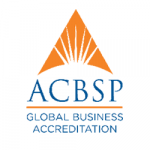
Why Choose Liberty University?
Enjoy flexible courses.
Choose from a wide variety of programs at the associate, bachelor’s, master’s, and doctoral level, most of which are 100% online*. With an 8-week format and 8 start dates per year, it’s easy to fit your courses around your schedule!
* Some exclusions apply. Please refer to our exclusions page for more information.
Maximize Your Time
Start and finish your degree faster! Liberty requires no standardized testing for admission, and you can transfer previous course credit — transfer in up to 75% of a bachelor’s degree and up to 50% of a master’s, postgraduate, or doctoral degree — or discover how your life, career, or military experience may count toward your college degree.
Grow in Your Faith
All of our courses are taught from a Christian perspective, and our faculty see themselves as mentors. Our mission is to Train Champions for Christ — we’re committed to championing you as you study to go further in your field, become a leader in your industry, or start a new career.
Access Academic Support
Throughout your educational journey, you will have access to academic resources that will aid in the completion of your degree. Services include our Jerry Falwell Library, writing center, tutoring, study aids, IT assistance, 30+ tutorial videos, live webinars, and personalized help from our academic advising team.
An Online Education with On-Campus Benefits

Cheer on 20 NCAA Division I games that air nationwide
Graduate with your peers
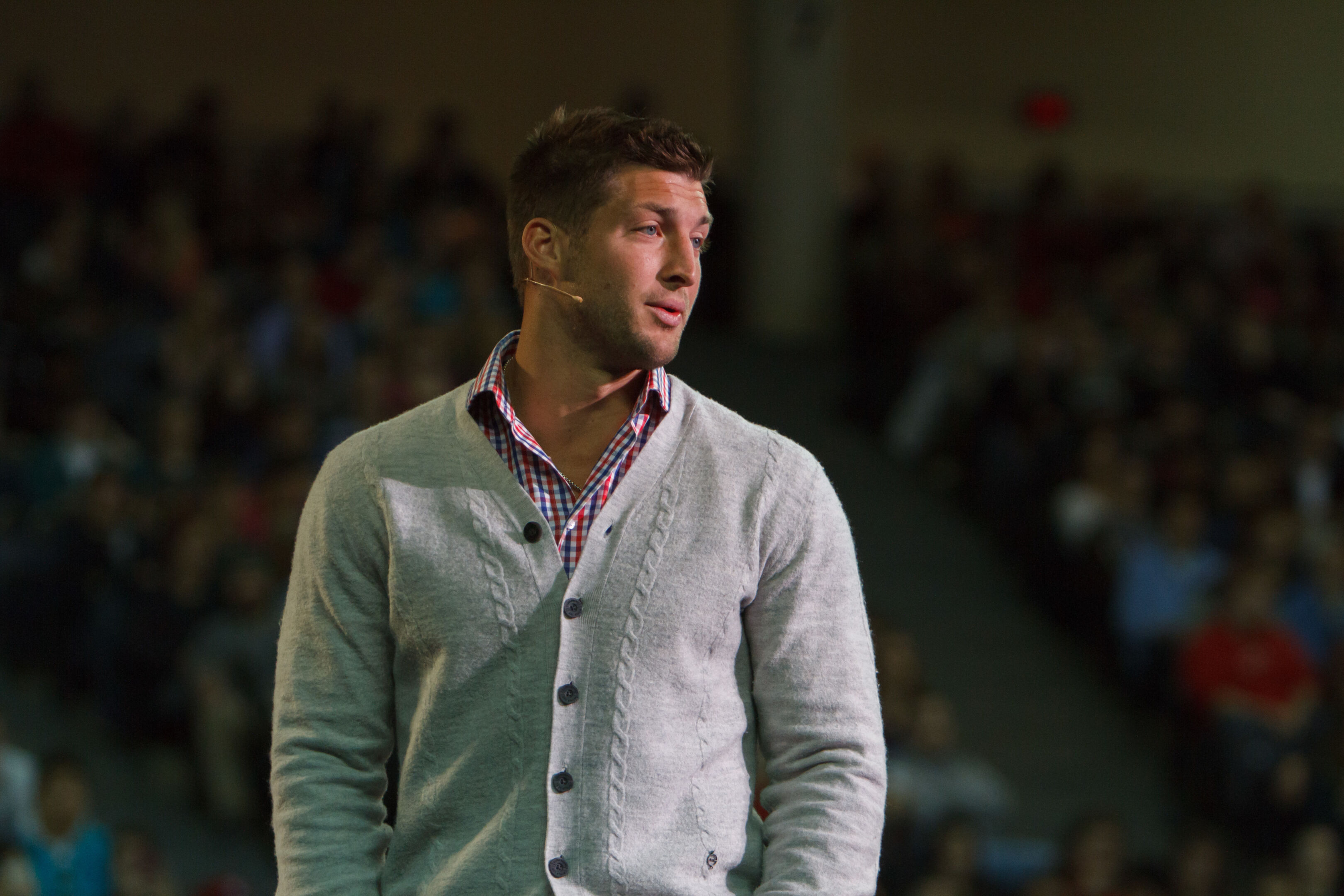
Be inspired by world-renowned speakers at Convocation
Why we’re nonprofit.
As a nonprofit (not-for-profit) university, Liberty is in the business of training skilled professionals to make a difference in the world – not gaining profit, revenue, or producing dividends for shareholders. In keeping with our commitment to your education, we invest our resources back into degree programs and into your student experience.
While many other online colleges have raised tuition, Liberty has been able to keep costs low as a nonprofit university and has not increased tuition for 9 straight years. Lower tuition means less student loan debt for students.
For Liberty University, nonprofit is more than a status; it is a valuable opportunity to invest in the lives of students who will go out and impact the world.
Request Information
Financing Options
Financial aid.
Nearly 80% of all Liberty students in an online program are awarded financial aid. Virginia residents may qualify for additional aid — learn more !
Corporate Tuition Assistance
Deferred – If your company reimburses you for the cost of your education, you pay only a portion of your balance up front. You submit your grades to your employer who pays you, and then you pay the remaining balance for your classes.
Tuition Discounts
Qualified military service members, veterans, and their spouses can receive up to 55% off their tuition rate for eligible programs!
Contact one of our Admissions Counselors for more information by calling (800) 424-9595 .
Apply FREE This Week*
*Some restrictions may occur for this promotion to apply. This promotion also excludes active faculty and staff, military, Non-Degree Seeking, DGIA, Continuing Education, WSB, and Certificates.
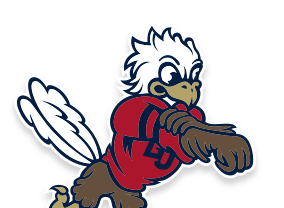
just applied for !

- Domestic or International?
- Current students
- My Courses 0
Bachelor of Early Childhood and Primary Education
This dual-accredited degree focuses on issues in children's learning and development. Gain the practical knowledge and skills needed to teach children.
4 years full-time, or part-time equivalent
Saved Course
You have saved Bachelor of Early Childhood and Primary Education to your saved items where it can be compared against other courses and also shared. Access saved items in the top right hand corner of the navigation. Courses are saved with cookies. Learn more about them.
Course overview
If you are passionate about children’s education, the Bachelor of Early Childhood and Primary Education opens the door to a range of inspiring career opportunities. Our dual-accredited degree focuses on contemporary issues in children’s learning and development, curriculum theories and pedagogies, discipline knowledge and the changing teaching and learning context within early childhood and primary education. Through our Professional Experience Program you will develop practical knowledge and gain invaluable insight into classroom environments. With the option to combine your personal interests with a range of curriculum areas, you will undertake placements in early childhood and primary school settings that enrich and solidify your studies so that you graduate with the confidence and aptitude to meet the significant growth of the Australian early childhood education sector. Are you ready to launch an exciting and rewarding career teaching children?
Deakin maintains close links with the education sector to ensure our courses are developed and reviewed with professional input. You will be taught by staff members who have teaching experience and who are recognised as leaders and innovators in their fields. This means you can be confident that what you learn with us will be relevant to your future teaching career.
In Australia, primary school teachers complete a specialisation in an area of expertise during their initial teacher education. Primary teaching specialisations include:
- mathematics
- language other than English.
The Professional Experience Program is a key part of every Deakin teaching student’s course experience. Working with more than 1400 schools and early childhood settings across Australia, we will arrange at least 115-days of placements for you in early childhood education and care settings, and schools where you will learn from experienced teachers.
Students also have access to specialised teaching spaces on campus to prepare for teaching.
Choose to study via Deakin's premium online learning platform and have the additional flexibility to balance work, life and study. Studying online is collaborative and engaging, while still allowing you to complete your studies when and where it suits you.
Students may be eligible for an attractive scholarship offered by the Victorian Department of Education and Training for pre-service teachers enrolled in early childhood teaching courses.
Additionally, the Bachelor of Early Childhood and Primary Education provides students with an approved pathway from the Diploma of Early Childhood Education and Care (previously Diploma of Children’s Services offered through TAFE. Eligible students may receive up to 8 credit points of recognition for prior learning towards their degree.
Before beginning your studies, prospective teaching students need to successfully complete the Casper test – an online, video scenario-based test that lets you demonstrate your suitability for a teaching career.
Direct applications to Deakin for Trimester 1 2025 close 26 January 2025
Current Deakin Students
To access your official course details for the year you started your degree, please visit the handbook
Course information
2025 course information
The award conferred upon completion is recognised in the Australian Qualifications Framework at Level 7
Course structure
To qualify for the award of Bachelor of Early Childhood and Primary Education, students must complete 32 credit points comprising:
- 30 credit points of core units;
- 2 credit points of Primary Teaching Specialisation in either: i) Science; or ii) Literacy, iii) Mathematics; iv) Languages
- Academic Integrity Module DAI001
- A maximum of 10 credit points at Level 1
- A minimum of 10 credit points at Level 3 or above
This course includes 115-days of supervised professional experience, and students must successfully complete the Deakin Teaching Performance Assessment (DTPA)*. This must be complete in the final year of study.Successful completion of this course indicates that a student has met the expected standard of performance for each of the Graduate Teacher Standards.
Students are also required to complete two zero (0) credit point units ELN010 and ELN011 as part of the Literacy and Numeracy Test for Initial Teacher Education (LANTITE) in order to graduate from their course.
Students are expected to attempt the tests within the first year of their course. Students who do not attempt the tests within their first year may be unable to progress with their studies until an attempt has been made.
* Students who do not pass the DTPA must seek advice from the course director.
- Australian Literacy Test ELN010
- Australian Numeracy Test ELN011
- Child Development 1 ECE110
- Curriculum 1: Pedagogies and Play ECE111
- Curriculum 2: Planning and Assessment for Teaching and Learning ECE112
- Promoting Health, Wellbeing and Nutrition ECE116
- Contemporary Perspectives of Education ECE120
- Partnerships with Families and Communities ECE130
- Creative Arts 1: Young Children and the Arts ECE140
- Professional Knowledge (0-2 Years) ECP128
- Mathematical Learning in the Early Years ECE211
- Curriculum 3: Planning and Assessment for Teaching and Learning ECE212
- Science 1: Science and Environmental Awareness for Young Children ECE220
- Language and Literacy Development in Early Childhood ECE230
- Creative Arts 2: Music and Visual Arts ECE241
- Understanding Early Reading Development ECL101
- Professional Practice 2 (3-5 Years) ECP228
- Australian Indigenous Education: Recognition, Relationships and Reconciliation IND202
- Multiliterate Learners in Early Years and School Environments ECE330
- Supporting Emerging Mathematical Skills for Infants and Toddlers ECE352
- Protective Education and Child Well-Being ECE360
- Guiding Engaged, Resilient Learners ECE370
- Inquiry Into Science Curriculum ECE380
- Inclusive Education for Young Children ECE404
- Supporting Children Making Transitions ECE420
1 credit point from primary teaching specialisation (Unit 1)
- Creative Learning Through the Arts ECE340
- Multiliterate Learners in Middle Years Environments ECL310
- Humanities Inquiry Pedagogy EEO410
- Teachers and Mathematics: Creating An Effective Classroom ESM310
- Primary Technology Education: Creativity and Design EST400
- Assessment: Ways of Knowing Learners ETP400
- University-To-Work Transition ETP403
1 credit point from primary teaching specialisation (Unit 2)
Primary Teaching Specialisations
Select one of the following four primary specialisations:
|
|
|
|
|
| Completion of Diploma^ | ETL710 |
|
| ALL153 OR ALL230 | ECL351 |
|
| SIT106 OR SIT176 | ESM303 |
|
| SLE123 OR SLE103OR SLE133 | EES300 |
^ Deakin has four options for languages study: Arabic, Chinese, Indonesian, Spanish: Concurrent enrolments in A221 Diploma of Arabic or A222 Diploma of Chinese , or A223 Diploma of Indonesian , or A224 Diploma of Spanish or equivalent with RPL given upon completion. Enrolment in one of A221, A222, A223 or A224 courses and one associated co-requisite unit are required for ETL710. The Diploma can be undertaken concurrently with another course and is of 3 years part-time duration with eight credit points.
There are two options for each Diploma: i) for students with no background in the language; or ii) an advanced study for those with Year 12 level (or equivalent) in the language.
Intakes by location
The availability of a course varies across locations and intakes. This means that a course offered in Trimester 1 may not be offered in the same location for Trimester 2 or 3. Check each intake for up-to-date information on when and where you can commence your studies.
Trimester 1 - March
- Start date: March
- Burwood (Melbourne)
Deakin splits the academic year into three terms, known as trimesters. Most students usually undertake two trimesters each year (March-June, July-November).
Aboriginal and Torres Strait Islander students can apply directly through the NIKERI Institute .
Additional course information
Course duration
Course duration may be affected by delays in completing course requirements, such as accessing or completing placements.
International students are required to study full-time to complete their course within the duration registered on CRICOS .
Mandatory student checks
Teacher Education Graduation requirements
Students undertaking an initial teacher education course must pass an approved literacy and numeracy test in order to be eligible to graduate and apply for teacher registration. Learn more about the literacy and numeracy test .
Working with Children Check
Students will be required to hold a valid Working with Children (WWC) Check prior to undertaking professional placements as part of this course. Learn more about Working with Children Checks.
Interstate applicants must check the requirements and meet all conditions for undertaking professional experience in schools for their state or territory before undertaking professional experience placements as part of this course.
Inherent requirements
It is expected that all students will be able to abide by, and ensure their behaviour is in accordance with the Victorian Institute of Teaching Code of Conduct.
Immunisations
Immunisation and/or vaccination requirements will be communicated by the Professional Experience Office in line with the Department of Education and Training's directions at the time of placement.
For further information contact the School of Education, Professional Experience Office.
Students will on average spend 150-hours over the teaching period for each credit point undertaking required teaching, learning and assessment activities.
Participation requirements
Professional Experience Placements are a compulsory component of the course and a requirement for registration as a graduate teacher. Placement can occur at any time, including during standard holiday breaks. Learn about key dates at Deakin .
Reasonable adjustments to participation and other course requirements will be made for students with a disability. More information available at Disability support services .
Students are required to check the placement calendars published on the Professional Experience Office website each year. Placement takes priority over employment and placement periods are generally block placements of 5 full-time days per week over 2-5 weeks.
Course delivery is blended and students are required to dedicate time to weekly engagement with located or online teaching and learning activities and resources. This is recommended at combined total 8-10 hours per week per unit including active learning/engagement either face to face or online, and independent study.
Some units will require students to attend early childhood settings or institutions for site-based learning and teaching experiences. Some units will require students enrolled in online learning to attend on campus activities.
Work experience
Students will satisfactorily complete 115-days of professional experience placement in a wide range of education and care settings, as outlined below:
Year 1: 5-days in infant and toddler education and care settings
Year 2: 2 x 20-days (40-days in total) in kindergarten settings
Year 3: 20-days in infant and toddler education and care settings and 15-days in kindergarten or foundation (primary school) settings
Year 4: 35-days in primary school settings
The School of Education Professional Experience Office makes all arrangements for PST placements. The number of professional experience days align with requirements of external regulatory authorities (VIT and ACECQA).
Entry requirements
Selection is based on a holistic consideration of your academic merit, work experience, likelihood of success, availability of places, participation requirements, regulatory requirements, and individual circumstances. You will need to meet the minimum academic and English language proficiency requirements to be considered for selection, but this does not guarantee admission.
Academic requirements
Current or recent secondary education.
If you're currently studying Year 12, or completed Year 12 in the last two years, you will need to meet all of the following criteria to be considered for admission to this degree:
Year 12 prerequisite subjects
- Units 1 and 2: satisfactory completion in two units (any study combination) of Maths: General Mathematics, Maths: Mathematical Methods or Maths: Specialist Mathematics or Units 3 and 4: Maths (any)
- Units 3 and 4: a study score of at least 35 in English EAL (English as an Additional Language) or at least 25 in English other than EAL
This course uses the ATAR as part of its selection considerations, and has a minimum ATAR requirement of 70 including selection adjustments.
Higher education
If you have undertaken higher education studies after secondary schooling, you will need to meet all the following criteria to be considered for admission to this degree:
- successful completion of at least two bachelor level or above units (AQF Level 7 or equivalent)
You are required to complete the STAT (Skills for Tertiary Admission Test) Multiple Choice if you have not completed Year 12, studied in the last five years, or met the mathematics prerequisties.
Learn more about the STAT Multiple Choice results for entry into Deakin University.
Please note that completion of Diploma level studies does not meet the mathematics prerequisite.
Vocational education
If you have undertaken any Vocational Education and Training (VET) study after secondary school, you will need to meet all of the following criteria to be considered for admission to this degree:
- full or partial completion of a VIT-approved Pathway Program with a minimum WAM (Weighted Average Mark) of 60% over a minimum of one year of study
- full or partial completion of a Diploma of Education and Care (or equivalent)
Work and life experience
If you finished Year 12 more than three years ago, or did not finish Year 12, and haven’t undertaken any further study, you may be considered for admission to this degree based on your work, volunteer and/or life experience.
Submit a personal statement outlining your motivation to study, previous education and employment history, and how this course can assist your career aspirations or progression. Think of it as a job application cover letter – it should be relevant and demonstrate your commitment and interest in this course or study area.
* You will need to meet all of the following criteria to be considered for admission to this degree:
English language proficiency requirements
To meet the English language proficiency requirements of this course, you will need to demonstrate at least one of the following:
- Victorian Certificate of Education (VCE) English Units 3 and 4: Study score of 35 in English as an Additional Language (EAL) or 25 in any other English
- IELTS overall score of 7.0 (with no band score less than 6.5) or equivalent
- other evidence of English language proficiency ( learn more about other ways to satisfy the requirements )
Non-academic requirements
All applicants must sit the Casper test. Casper is a requirement for many of the initial teacher training courses in Victoria. It is a non-cognitive online test designed to assess an applicant's personal and professional attributes.
Learn more about how to register for Casper and deadlines for sittings for VTAC applications and direct applications.
Selection adjustments
Subject adjustment
A study score of 30 in English other than EAL, any LOTE or any Mathematics equals 2 aggregate points per study. Overall maximum of 12 points.
Access and equity
Special entry access schemes (SEAS) enable Deakin to consider disadvantaged circumstances you may have experienced and the impact upon your studies. SEAS also allows us to identify if you’re from under-represented groups when making selection decisions for some courses. SEAS does not exempt you from meeting any of the course entry requirements. Learn more about Deakin’s special entry access schemes .
Admissions information
Learn more about Deakin courses and how we compare to other universities when it comes to the quality of our teaching and learning. We're also committed to admissions transparency. Read about our first intake of 2024 students (PDF, 793KB) – their average ATARs, whether they had any previous higher education experience and more.
Not sure if you can get into Deakin? Discover the different entry pathways we offer and study options available to you, no matter your ATAR or education history.
Applicant indicator profile report of all applicants applying to Deakin University Undergraduate Teaching courses in Trimester 1, 2024.
Recognition of prior learning
The University aims to provide students with as much credit as possible for approved prior study or informal learning which exceeds the normal entrance requirements for the course and is within the constraints of the course regulations. Students are required to complete a minimum of one-third of the course at Deakin University, or four credit points, whichever is the greater. In the case of certificates, including graduate certificates, a minimum of two credit points within the course must be completed at Deakin.
The Bachelor of Early Childhood and Primary Education provides an approved pathway from the Diploma of Early Childhood Education (Previously Diploma of Children’s Services) offered through TAFE. Applicants who have completed the Diploma of Early Childhood Education may receive 8 credit points of Recognition of prior learning reducing the total course duration by 2 trimesters of full-time study. You can also refer to the Recognition of prior learning System which outlines the credit that may be granted towards a Deakin University degree and how to apply for credit.
Fees and scholarships
Fee information.
The tuition fees you pay will depend on the units you choose, as each unit has its own cost. The 'Estimated tuition fee' is provided as a guide only and represents the typical first-year tuition fees for students enrolled in this course. The cost will vary depending on the units you choose, your study load, the time it takes to complete your course and any approved Recognition of prior learning you have.
Each unit you enrol in has a credit point value. The 'Estimated tuition fee' is calculated by adding together 8 credit points of a typical combination of units for this course. Eight credit points is used as it represents a typical full-time enrolment load for a year. You can find the credit point value of each unit under the Unit Description by searching for the unit in the handbook .
Learn more about fees and available payment options on our Current students fees website .
Scholarship options
A Deakin scholarship might change your life. If you've got something special to offer Deakin – or you just need the financial help to get you here – we may have a scholarship opportunity for you.
Search or browse through our scholarships
Victorian Government placement grants
Grants ($140 - $420 per day) are available to support completing a teaching placement in an eligible regional or remote Victorian government school. Visit the Victorian Government Pre-service Teacher Placement Grant program .
Applications for Trimester 1, 2025 are open. We've helped over 300,000 Deakin graduates across Australia and throughout the world apply with confidence. In Year 12? Follow these how to apply steps . Completed secondary education in or prior to 2021? Follow these how to apply steps .
Applications for Trimester 1, 2025 are open.
To apply, create an account in the Deakin Application Portal , enter your personal details and education experience, upload supporting documents and submit. Need help? Play this video , or contact one of our friendly future student advisers on 1800 693 888 or submit an online enquiry .
Apply through Deakin
To learn more about what the Bachelor of Early Childhood and Primary Education at Deakin has to offer, download our course flyer.
Courses at Deakin are flexible and culturally inclusive. Explore the various ways you can apply to study this course - including through the NIKERI Institute and via the Indigenous Access Scheme.
How to apply
Entry pathways
View pathways into the Bachelor of Early Childhood and Primary Education with our pathways finder .
Pathways for credit are available for this course. Details of institutional credit agreements are published in the RPL database . International students can apply for packaged offers for some of these pathways.
Applicants who have completed a Diploma of Early Childhood Education (or equivalent) are eligible to receive 8 Credit Points, gaining entry into the course in the second year.
Applicants who have completed at least 2 units in the Bachelor of Early Childhood Education (E333) at Deakin University are eligible to receive Credit for the units they have completed. Entry into the course is dependent on the following:
- A minimum WAM of 65
- Completion of an additional selection tool for non-academic attributes. Deakin University is using the Casper test. Casper is an online, video-scenario based situational judgement test, designed to measure non-academic suitability for teaching.
The Bachelor of Early Childhood and Primary Education provides a pathway into the Graduate Certificate in Educational Research.
Guaranteed pathways
Entry is dependent on the completion of the Casper test. Casper is an online, video-scenario based situational judgement test, designed to measure non-academic suitability for teaching.
Alternative exits
- Bachelor of Early Childhood Education (E333)
- Bachelor of Early Childhood Studies (E320)
Contact information
Our friendly advisers are available to speak to you one-on-one about your study options, support services and how we can help you further your career.
- Call us: 1800 693 888 Monday – Friday, 9am–5pm
- Live Chat : Monday - Friday
- Submit an online enquiry
- Help hub find common and trending questions and answers
Want a degree that’s more than just a qualification? Our industry connections, world-class facilities and practical approach to learning are just some of the reasons why Deakin students graduate confident and ready to thrive in the jobs of tomorrow.
#11 in the world for education and educational research *
Top 1% of universities worldwide ^
Accredited by the Victorian Institute of Teaching
#1 university in Victoria for student satisfaction*
Career outcomes
There is an increasing demand for qualified early childhood teachers, with the workforce set to double in the next 10-years. In both early childhood and primary school education settings there is a strong demand for qualified teachers and graduate starting salaries for teachers are high compared to the graduate average. As a graduate of this course you may find employment as a teacher within the private or public education sectors.
You might also find employment in a range of other education related fields including:
- consultancy
- research or community-based organisations (e.g. museums, outdoor education, arts institutions, etc)
For more information go to DeakinTALENT .
Professional recognition
This course is accredited by the Victorian Institute of Teaching (VIT) and Australian Children’s Education and Care Quality Authority (ACECQA) as a nationally recognised primary and early childhood teaching qualification. Graduates of this course will be eligible to register with the Victorian Institute of Teaching (VIT). Graduates who are intending to apply for registration interstate may be required to provide further information. Interstate applicants are advised to check the registration requirements in their state or territory carefully.
Course learning outcomes
Deakin's graduate learning outcomes describe the knowledge and capabilities graduates can demonstrate at the completion of their course. These outcomes mean that regardless of the Deakin course you undertake, you can rest assured your degree will teach you the skills and professional attributes that employers value. They'll set you up to learn and work effectively in the future.
|
|
|
| Discipline-specific knowledge and capabilities | Analyse and apply principles and practices relevant to curriculum, policy and regulations in early childhood and primary school education with in-depth knowledge and evaluation of theoretical underpinning. |
| Communication | Effectively evaluate and select communication skills (oral, written, digital and nonverbal) to professionally transmit knowledge and ideas with diverse individuals and groups (such as children, families, parents and caregivers, colleagues and other professionals, community organisations). |
| Digital literacy | Critically evaluate and apply a range of technologies to collect, analyse, synthesise, evaluate, generate and transmit information for the purposes of appropriate teaching and learning in a rapidly changing global environment. |
| Critical thinking | Analyse and evaluate contemporary issues, policies and research in educational and societal contexts to generate and transmit informed judgements to complex situations relating to teaching and learning. |
| Problem solving | Use analytical and practical skills to make well developed judgements, generate and transmit creative, innovative and authentic solutions to real-life and complex problems encountered when working with diverse individuals and groups (such as children, families, parents and caregivers, colleagues and other professionals, community organisations). |
| Self-management | Critically reflect on planning, problem-solving and decision making in teaching and learning contexts. Use initiative and autonomy to apply analytic knowledge and critical reflective skills to demonstrate responsibility for own learning and professional practice (and in collaboration with others). |
| Teamwork | Actively and collaboratively participate in learning communities, involving learners, families, community members, colleagues and the broader profession. |
| Global citizenship | Adapt and apply knowledge and skills that support the diversity of Australian society in the professional context. This includes influences of Indigenous and intercultural issues, family contexts, gender and disability on development, learning and teaching. |
| Approved by Faculty Board 2020 | |

*Deakin references data from a range of government, higher education and reputable media sources. For more information, visit our list of sources . ^Australian Graduate Recruitment Industry Awards, 2017, 2018, 2019 winner
Discover more
Which best describes you?
Domestic student
- an Australian citizen;
- an Australian permanent resident;
- an Australian permanent humanitarian visa holder;
- a New Zealand citizen.
International student
- a temporary resident (visa status) of Australia;
- a permanent resident (visa status) of New Zealand;
- a resident or citizen of any other country, intending to study on a student visa.
We use cookies to improve your experience. You consent to the use of our cookies if you proceed. Visit our Privacy policy for more information.
More from Swinburne University
- Giving to Swinburne
- Current students
- Staff login
- Arts, Humanities and Social Sciences
- Built Environment and Architecture
- Engineering
- Film and Television
- Games and Animation
- Information Technology
- Media and Communication
- Trades and Apprenticeships
- Study online
- Transition to university from VCE
- Direct entry into university
- Returning to study
- Vocational Education and Training at Swinburne
- Early Entry Program
- University entry requirements
- Transferring to Swinburne
- Recognition of prior learning in the workplace
- Study Abroad in Melbourne
- Study support for indigenous students
- Guaranteed pathways from TAFE
- Short courses
- University certificates
- Pre-apprenticeships
- Apprenticeships
- Associate degrees
- Bachelor degrees
- Double degrees
- Certificates
- Traineeships
- Trade short courses
- Doctor of Philosophy
- Master degrees
- Graduate diploma courses
- Graduate certificate courses
- Studying outside of Australia
- Study on campus
- Loans and discounts for local students
- Course fees for international student
- Fees for local students
- Student Services and Amenities Fee
- Scholarship conditions
- Scholarships for international students
- How to apply as a local student
- How to apply for a research degree
- How to apply as an international student
- Apply as an asylum seeker or refugee
- How to enrol
- Understanding your university offer
- Course planner
- Setting up your class timetable
- Enrol as a PhD or master degree student
- Why study in Australia?
- Plan your arrival in Melbourne
- Arriving in Melbourne
- Things to do in Melbourne
- Getting around Melbourne
- Money, living costs and banking in Australia
- International student stories
- Student email, password and Wi-Fi access
- Your student ID card and Swinburne login
- Student discounts and concessions
- Special consideration and extensions
- Accommodation
- Study and learning support
- Health and wellbeing
- Support for international students
- Independent advocacy for service
- Indigenous student services
- Financial support and advice
- AccessAbility services
- Legal advice for students
- Spiritual Wellbeing
- Assault reporting and help
- Asylum seeker and refugee support
- Care leaver support
- LGBTIQ+ community support
- Childcare for the Swinburne community
- Support for Students Guidelines: Policies, Procedures and Frameworks
- Industry-linked projects
- Internships
- Student stories
- Professional Degrees
- Industry study tours
- Get paid to podcast
- Real industry experience stories
- Overseas exchange
- Overseas study tours
- Overseas internships
- Students currently overseas
- Improve your employability
- Career services
- Professional Purpose program
- Partner Stories
- Hosting students with disabilities
- Work with our accreditation placement students
- Benefits of working with our students
- Apprenticeships and traineeships
- Workshops, events and outreach programs
- Work experience
- Knox Innovation, Opportunity and Sustainability Centre
- Australian Synchrotron Science Education
- PrimeSCI! science education
- Student projects
- Meet our facilitators
- Meet our consultants
- Meet our leadership and management teams
- Hybrid working solutions
- Training needs analysis
- Why partner with Swinburne
- 4 simple steps to setting up a partnership
- Achievements and success stories
- Research engagement
- Facilities and equipment
- Achievements and recognition
- Iverson Health Innovation Research Institute
- Social Innovation Research Institute
- Space Technology and Industry Institute
- Innovative Planet Research Institute
- Research centres, groups and clinics
- Research platforms and initiatives
- Research facilities and equipment
- Indigenous research projects
- Animal research
- Biosafety and Defence
- Data management
- Funding from tobacco companies
- Human research
- Intellectual property
- Find an expert

- Australian or New Zealand citizens
- Australian permanent residents
- Not holding Australian or New Zealand citizenship or Australian permanent residency
Bachelor of Education (Early Childhood and Primary)
Entry requirements, study structure, fees & scholarships, how to apply.
Gain the skills and knowledge to become an inspiring early childhood and primary school teacher. Be prepared for teaching in the 21st century using emerging technologies. You'll study contexts of education, cultural-historical perspectives and child development, as well as units focusing on specific subject disciplines. Choose from specialisations in Mathematics and English.
Timely applications now open
State-of-the-art facilities. Innovation in every course. Finding your people. Make Swinburne your #1 VTAC preference before Timely applications close Monday 30 September.
Your industry experience
All our bachelor degrees include a guaranteed Work Integrated Learning opportunity. This degree includes a mandatory work placement as a professional accreditation requirement. Complete 91 days of placement and be eligible for employment in a range of early childhood and primary school settings in Australia.
Skills you’ll learn
- Emerging technologies
- Problem-solving
- Intercultural competence
- Contextual and theoretical knowledge
Your career opportunities
- Early childhood educator
- Primary school teacher
- Early childhood teacher
- Classroom teacher
- Early childhood director
- Early childhood worker
International student visa
International students in Australia who hold student visas are required to study full-time and on campus. Courses that are taught entirely online are only available to international students studying outside Australia or those in Australia who are not on a student visa. Online courses are not available to international students in Australia who hold a student visa.
Professional accreditations

Australian Children's Education and Care Quality Authority

Victorian Institute of Teaching
Why swinburne.
Top 500 in the world for education
5 stars for overall experience
5 stars for teaching quality
#1 in Melbourne for support services

"As an international student, I chose a university that has an inclusive culture , delivers consistent quality teaching and offers exceptional educational and technological facilities . For years, it’s been my passion to help children thrive through education. Studying at Swinburne is helping me achieve my goal of becoming a kindergarten teacher."
Winchell , Bachelor of Education in Early Childhood
Qualifications
One of the following:
- successful completion of the Victorian Certificate of Education (VCE) or its equivalent, such as an interstate or international Year 12 qualification
- completion of an approved Diploma or Advanced Diploma
- completion or partial completion of an approved Associate Degree or Bachelor Degree
ATAR Minimum Entry Score
You’ll be guaranteed a place in this course if you meet or exceed the ATAR Guaranteed Entry Score, provided you meet the course prerequisites.
If your ATAR is below the guaranteed entry score, you can still be offered a place as your ATAR may be adjusted based on subject bonuses, equity schemes or other factors. Use the above ATAR as a guide on your eligibility, and see the course handbook page for more information on entry requirements.
Successful completion of Australian Year 12, or equivalent overseas qualification.
Course prerequisites
- VCE Units 3 and 4: a minimum study score of at least 25 in any English (except EAL) or 30 in English as an Alternate Language (EAL) and a study score of at least 20 in any Mathematics
Applicants who do not meet the mathematics prerequisites for this course will be required to successfully complete Swinburne’s MathsLink Further Mathematics bridging program.
Other requirements
All applicants must sit and achieve an appropriate standard on a selection test used to assess an applicant’s non-academic personal and professional attributes.
Applicants applying to transfer from another initial teacher education course must disclose all Literacy and Numeracy Test for Initial Teacher Education (LANTITE) attempts. Applicants who have unsuccessfully attempted the LANTITE three or more times will not be eligible to receive an offer.
Casper test
All applicants (both standard entry and non-year 12 entry) must sit the Casper test . Casper is an online, open-response situational judgement test that takes approximately 60 minutes to complete. Casper measures different personal and professional skills that are important for successful students and graduates of our program. It will complement the other criteria we use for applicant selection, and we require Casper as part of our efforts to enhance fairness and objectivity in our selection process.
To ensure you don’t miss the Casper test deadlines, register for your sitting or see further information about the test.
If you are a current Year 12 student, please refer to the VTAC website for deadlines.
Admission to this course will consider both academic and non-academic results.
English language proficiency
All applicants must demonstrate suitable English language proficiency for successful completion of the course.
The university may determine selection criteria and restrictions in respect of courses to apply in addition to these entry requirements. Eligibility for admission does not guarantee offer of a place.
Working with Children Check and Police Check
All enrolled students must maintain a current Working with Children Check (from the appropriate State Authority). A Police Check may also be required by a school prior to a placement. View the list of each state's requirements.
All applicants (both standard entry and non-year 12 entry) must sit the Casper test . Casper is a non-academic online test designed to assess an applicant's personal and professional attributes. Please note Swinburne will consider Casper test results taken within the past year. It is an Australian Government accreditation requirement that all initial teacher education courses include non-academic selection criteria.
View the Informed Choices statement , which provides information about the inherent requirements of education, specifically the essential physical and behavioural abilities needed to perform assessment tasks and professional placements in education and progress to a career in this field. This information is intended to assist you to choose whether you can successfully participate in and complete a course.
Admission requirements
Meeting the minimum entry requirements for the course does not guarantee an offer of a place. Check admission requirements for general information about the admission process.
English language requirements
Satisfactory completion of one of the following:
- IELTS overall band of 6.5 (Academic Module) with no individual band below 6.0
- Swinburne’s English for Academic Purposes (EAP 5 Advanced level) with overall 70%, all skills 65% or above
- or equivalent measures available at English language requirements .
Need to undertake an English assessment for entry?
A prerequisite for many courses, the Pearson Test of English (PTE Academic) can now be done at our Hawthorn campus.
Credit transfer
Credit is granted in recognition of previous study and/or experience and allows students to gain advanced standing towards their course. Applicants are assessed on a case-by-case basis.
Recognition of prior learning
Recognition of Prior Learning (RPL) allows students to gain credit (advanced standing) towards their course in recognition of skills and knowledge gained through work experience, life experience and/or formal training. Applicants are assessed on a case-by-case basis.
Apply for a pathway course
Pathways allow students to progress from one qualification to another where the first course is recognised as an entry requirement and/or provides credit (advanced standing) to the second.
Diploma of Early Childhood Education and Care
1 year full-time, 8 units max credit
Note: This information should be used as a guide for those who have completed a course and are seeking credit into another course. For those yet to commence their course, during the time taken to complete, this information may change. Credit available may vary depending on the major selected within any given degree. Progression to professional degrees may be subject to additional criteria or academic performance.
How credit points work
Successful completion of the Bachelor of Education (Early Childhood and Primary) requires students to complete units of study to the value of 400 credit points. All units of study are valued at 12.5 credit points unless otherwise stated.
What your course could look like
Units are listed in a proposed sequence. However this can be amended depending on unit availability, prerequisite requirements and the semester in which you commenced your course.
100 credit points
| Units of study | Unit code |
|---|---|
| Semester 1 | |
| Core unit, 12.5 credit points | EDU10002 |
| Core unit, 12.5 credit points | EDU10003 |
| Core unit, 12.5 credit points | EDU10004 |
| Core unit, 12.5 credit points | EDU10026 |
| Semester 2 | |
| Core unit, 12.5 credit points | EDU10001 |
| Core unit, 12.5 credit points | EDU10005 |
| Core unit, 12.5 credit points | EDU20001 |
| Core unit, 12.5 credit points | EDU20003 |
Want to see the full range of electives?
Learn about all the electives you can take in the course handbook.
| Units of study | Unit code |
|---|---|
| Semester 1 | |
| Core unit, 12.5 credit points | EDU20014 |
| Core unit, 12.5 credit points | EDU30014 |
| Core unit, 12.5 credit points | EDU30070 |
| Core unit, 12.5 credit points | EDU40002 |
| Semester 2 | |
| Core unit, 12.5 credit points | EDU20002 |
| Core unit, 12.5 credit points | EDU20005 |
| Core unit, 12.5 credit points | EDU20006 |
| Core unit, 12.5 credit points | EDU30005 |
| Units of study | Unit code |
|---|---|
| Semester 1 | |
| Core unit, 12.5 credit points | EDU30009 |
| Core unit, 12.5 credit points | EDU30011 |
| Core unit, 12.5 credit points | EDU30068 |
| Core unit, 12.5 credit points | EDU40001 |
| Semester 2 | |
| Core unit, 12.5 credit points | EDU30007 |
| Core unit, 12.5 credit points | EDU30027 |
| Core unit, 12.5 credit points | EDU30059 |
| Core unit, 12.5 credit points | EDU40008 |
| Units of study | Unit code |
|---|---|
| Semester 1 | |
| Core unit, 12.5 credit points | EDU30062 |
| Core unit, 12.5 credit points | EDU30063 |
| Core unit, 12.5 credit points | EDU30064 |
| Core unit, 12.5 credit points | EDU40012 |
| Semester 2 | |
| Core unit, 12.5 credit points | EDU30006 |
| Core unit, 12.5 credit points | EDU40006 |
| Core unit, 12.5 credit points | EDU40011 |
| Core unit, 12.5 credit points | EDU40022 |
Yearly fee* ($AUD)
Total fee* ($aud), fees are estimates only.
The student tuition fees as published are subject to change given individual circumstances at enrolment. These fees apply to 2024 unit enrolments for HE Commonwealth Supported Place (CSP) and Undergraduate Full Fee Paying (FFP) only and may change for units studied in future years. If part-time study is permitted, annual fees will be proportionally lower based on the number of units taken per semester.
The indicative course fees shown apply to international students for the relevant year only. They are based on a standard study load per year. However, please note that fees are assessed according to a student's study load in each semester, and variation to study load will result in an adjustment to tuition fees. International tuition fees are generally inclusive of Student Services and Amenities Fee (SSAF). All fees are subject to annual review and may be adjusted.
How do I pay my fees?
HECS-HELP is a loan and discount scheme available to you if you are eligible and enrolled in a Commonwealth supported place. A HECS-HELP loan can cover all or part of your contribution amount. You can also choose to pay your fees up front.
International students need to pay tuition fees up-front by the relevant due date. You can find the due dates on your Statement of Account.
To pay your fees:
- log in to My Financials
- check your Australian bank account details are correct
- check your Statement of Account to see how much you owe
- pay using your preferred payment method.
Eligibility for HECS-HELP
You are eligible for a HECS-HELP loan if you have been offered a Commonwealth Supported Place (CSP) for an undergraduate degree at Swinburne or a UniLink course, and you:
- are an Australian citizen and doing at least one unit of your course in Australia; or
- hold a permanent humanitarian visa and will be living in Australia for the duration of your course; or
- hold a New Zealand Special Category visa and meet the special eligibility requirements for New Zealand citizens.
Student services and amenities fee
This funding serves to improve the student experience at Swinburne. You may use many or just some of the services and amenities that the fee provides.
The fee shown in the capped amount for 2024.
This amenities fee is included within your annual tuition fee listed above. The fee shown in the capped amount for 2024.
Please refer to the Student Services Amenities Fee page for more information.
SSAF fee* ($AUD)
Scholarships.
Scholarship applications for 2024 are open. Scholarships at Swinburne are about providing opportunity, promoting equity and recognising excellence and achievement. We want you to reach your potential and achieve your life and career goals.
Our handy guide will assist you to gather documents for your application.
When you apply for a Swinburne course, we automatically consider you for an international scholarship of up to 20 per cent off your course fees – no separate application required! Just apply for your Swinburne course of choice and when we review your course application, we will also assess you for an international scholarship.
Apply through an agent
Most international students use an education agent to help them through the application process. Swinburne has agents all over the world that can help you with your application to study. Search for a Swinburne representative in your country. If your country is not listed, please contact us.
Apply directly
Ready to take on a new challenge and reach your academic goals? If you already know which course you want to study and understand the entry requirements, what are you waiting for? Apply online! Remember, you cannot apply direct if you have an active VTAC application.
Apply through VTAC
International students currently studying Year 12 in Australia must apply through VTAC. VTAC is the central office that administers the application processes for places in tertiary courses, scholarships and the Special Entry Access Scheme at universities, TAFEs and independent tertiary colleges in Victoria.
VTAC is the central office that administers the application processes for places in tertiary courses, scholarships and the Special Entry Access Scheme at universities, TAFEs and independent tertiary colleges in Victoria.

Virtual Tour
Experience University of Idaho with a virtual tour. Explore now
- Discover a Career
- Find a Major
- Experience U of I Life
More Resources
- Admitted Students
- International Students
Take Action
- Find Financial Aid
- View Deadlines
- Find Your Rep

Helping to ensure U of I is a safe and engaging place for students to learn and be successful. Read about Title IX.
Get Involved
- Clubs & Volunteer Opportunities
- Recreation and Wellbeing
- Student Government
- Student Sustainability Cooperative
- Academic Assistance
- Safety & Security
- Career Services
- Health & Wellness Services
- Register for Classes
- Dates & Deadlines
- Financial Aid
- Sustainable Solutions
- U of I Library

- Upcoming Events
Review the events calendar.
Stay Connected
- Vandal Family Newsletter
- Here We Have Idaho Magazine
- Living on Campus
- Campus Safety
- About Moscow

The largest Vandal Family reunion of the year. Check dates.
Benefits and Services
- Vandal Voyagers Program
- Vandal License Plate
- Submit Class Notes
- Make a Gift
- View Events
- Alumni Chapters
- University Magazine
- Alumni Newsletter

SlateConnect
U of I's web-based retention and advising tool provides an efficient way to guide and support students on their road to graduation. Login to SlateConnect.
Common Tools
- Administrative Procedures Manual (APM)
- Class Schedule
- OIT Tech Support
- Academic Dates & Deadlines
- U of I Retirees Association
- Faculty Senate
- Staff Council
Margaret Ritchie School of Family and Consumer Sciences
Margaret ritchie school of family & consumer sciences.
University of Idaho
Physical Address: Mary Hall Niccolls Building, Rm 103 751 Campus Drive
Mailing Address: 875 Perimeter Dr. MS 3183 Moscow, ID 83844-3183
Phone: 208-885-6546
Fax: 208-885-5751
Email: [email protected]
Web: uidaho.edu/cals/fcs
Mailing Address: 322 E. Front Street, Suite 180 Boise, ID 83702
Phone: 208-334-2999
Fax: 208-364-4035
Email: [email protected]
Web: uidaho.edu/boise
Coeur d'Alene
Mailing Address: 1031 N. Academic Way, Suite 242 Coeur d'Alene, ID 83814-2277
Phone: 208-667-2588
Fax: 208-664-1272
Email: [email protected]
Early Childhood Education, B.S.
Career information is not specific to degree level. Some career options may require an advanced degree.
Current Job Openings and Salary Range
in ID, WA, OR, MT and HI
Entry-Level
Senior-Level

- Career Options
- Education Administrator, Preschool and Childcare Center/Program
- Child, Family, or School Social Worker
- Preschool Teacher, Except Special Education
- Kindergarten Teacher, Except Special Education
Regional Employment Trends
| 101K |
| 104K |
| 108K |
| 109K |
| 109K |
Employment trends and projected job growth in ID, WA, OR, MT & HI
*Job data is collected from national, state and private sources. For more information, visit EMSI's data sources page .
- Degree Prep
To prepare for courses required to earn a degree in early childhood education and development, we recommend you:
- Volunteer in your community (e.g., schools, nonprofit organizations)
- Work with young children with and without special needs
- Develop leadership skills in student office
- Participate in early childhood events in your community
- Degree Roadmap
- Sample 4-year plan (pdf)
Course descriptions and up-to-date program requirements can be found in the U of I General Catalog .
To find out about deadlines and eligibility requirements, please visit the University of Idaho Financial Aid office .
- Scholarships
Over 400 scholarships are offered exclusively to College of Agricultural and Life Sciences (CALS) students based on GPA and other qualifications.
You can find general need- and merit-based scholarships on the Financial Aid office's scholarships page .
- Hands-on Learning
- Laboratory classes and clinics (child development laboratory)
- Internships with state/federal funded early childhood programs
- Study abroad
- Collegiate Family, Career and Community Leaders of America (FCCLA)
- Phi Upsilon Omicron
- Job Openings and Salary Range
- Employment Trends
Educating Our Future Leaders
Quality care and education for young children is critically important, and demand for teachers is great. You will study teaching methods, explore child development and family relations, and learn about special education strategies in real-world settings. Upon completion, you are eligible for the Idaho Blended Early Childhood Education/Early Childhood Special Education (Birth — Grade 3) teaching certification.
- Program is offered in Moscow and Coeur d'Alene
- The Child Development Laboratory and U of I Children's Center offer real-world settings to practice and learn
- Service learning at local elementary schools
- Intern at state/federal funded early childhood programs
- Join the Collegiate FCCLA and meet professionals in the field
- Participate in an undergraduate research project to expand your knowledge
2024-2025 Catalog
Early childhood education (b.s.).
Required course work includes the university requirements (see regulation J-3 ) and:
| Code | Title | Hours |
|---|---|---|
| Fundamentals of Oral Communication | 3 | |
| Teaching Culturally Diverse Learners | 3 | |
| Teaching Reading and Literacy | 3 | |
| Literature for Children | 3 | |
| Teaching Writing/Language Arts | 3 | |
| Elementary Art Education | 3 | |
| Elementary Math Education | 3 | |
| Elementary Social Studies Education | 3 | |
| Elementary Science Education | 3 | |
| Internship Seminar | 1 | |
| Integrated Elementary Methods Practicum I | 3 | |
| Integrated Elementary Methods Practicum II | 1 | |
| Technology, Teaching and Learning | 2 | |
| Elementary Internship I | 7 | |
| Educating for Exceptionalities | 3 | |
| Supporting Student Behaviors in the Classroom | 3 | |
| Language and Communication Development and Disorders | 3 | |
| Special Education Internship II | 7 | |
| Introduction to Early Childhood Education | 3 | |
| Infancy and Early Childhood | 3 | |
| Principles and Methods of Child Observation | 3 | |
| Developmental Curriculum for Young Children | 4 | |
| Parent-Child Relationships in Family and Community | 3 | |
| Feeding Young Children in Group Settings | 1 | |
| Theories of Child and Family Development | 3 | |
| Assessment: Early Childhood/SPED | 3 | |
| Early Childhood SPED Curriculum | 3 | |
| Infant & Toddler SPED Internship | 1-7 | |
| INTERN: Preschool | 4 | |
| Preschool Internship Seminar | 2 | |
| Mathematics for Elementary Teachers I | 3 | |
| Elementary Health and Physical Education | 1 | |
| Total Hours | 94-100 | |
Courses to total 131 credits for this degree
| Fall Term 1 | Hours | |
|---|---|---|
| Fundamentals of Oral Communication | 3 | |
| Writing and Rhetoric I | 3 | |
| Introduction to Early Childhood Education | 3 | |
| College Algebra | 3 | |
| Scientific Ways of Knowing Course | 4 | |
| Hours | 16 | |
| Spring Term 1 | ||
| Writing and Rhetoric II | 3 | |
| Infancy and Early Childhood | 3 | |
| Scientific Ways of Knowing Course | 4 | |
| Social and Behavioral Ways of Knowing Course | 3 | |
| International Course | 3 | |
| Hours | 16 | |
| Fall Term 2 | ||
| Parent-Child Relationships in Family and Community | 3 | |
| Principles and Methods of Child Observation | 3 | |
| Mathematics for Elementary Teachers I | 3 | |
| Humanistic and Artistic Ways of Knowing Course | 3 | |
| Social and Behavioral Ways of Knowing Course | 3 | |
| Hours | 15 | |
| Spring Term 2 | ||
| Developmental Curriculum for Young Children | 4 | |
| Teaching Culturally Diverse Learners | 3 | |
| Educating for Exceptionalities | 3 | |
| Theories of Child and Family Development | 3 | |
| Humanistic and Artistic Ways of Knowing Course | 3 | |
| Hours | 16 | |
| Summer Term 2 | ||
| Supporting Student Behaviors in the Classroom | 3 | |
| Language and Communication Development and Disorders | 3 | |
| Hours | 6 | |
| Fall Term 3 | ||
| Assessment: Early Childhood/SPED | 3 | |
| Teaching Reading and Literacy | 3 | |
| Teaching Writing/Language Arts | 3 | |
| Elementary Art Education | 3 | |
| Integrated Elementary Methods Practicum II | 1 | |
| Literature for Children | 3 | |
| Hours | 16 | |
| Spring Term 3 | ||
| Early Childhood SPED Curriculum | 3 | |
| INTERN: Preschool | 4 | |
| Infant & Toddler SPED Internship | 6 | |
| Preschool Internship Seminar | 2 | |
| Feeding Young Children in Group Settings | 1 | |
| Hours | 16 | |
| Fall Term 4 | ||
| Elementary Math Education | 3 | |
| Elementary Social Studies Education | 3 | |
| Elementary Science Education | 3 | |
| Integrated Elementary Methods Practicum I | 3 | |
| Technology, Teaching and Learning | 2 | |
| Hours | 14 | |
| Spring Term 4 | ||
| Internship Seminar | 1 | |
| Elementary Internship I | 7 | |
| Special Education Internship II | 7 | |
| Elementary Health and Physical Education | 1 | |
| Hours | 16 | |
| Total Hours | 131 | |
The degree map is a guide for the timely completion of your curricular requirements. Your academic advisor or department may be contacted for assistance in interpreting this map. This map is not reflective of your academic history or transcript and it is not official notification of completion of degree or certificate requirements. Please contact the Registrar's Office regarding your official degree/certificate completion status.
Standard 1 Child Development: Early Childhood professionals understands the development period of early childhood from birth through age 8, both typical and atypical, across all developmental domains and designs and implements developmentally appropriate and challenging learning experiences.
Standard 2 Learning Differences. Early Childhood professionals understand that children learn and develop within relationships and within multiple contexts (e.g., families, cultures, languages, communities) and use this multidimensional knowledge to make evidence-based decisions that support each child.
Standard 3 Learning Environment. Early Childhood professionals work with others to create environments that support individual and collaborative learning, and that encourage positive social interaction, active engagement in learning, and self-motivation.
Standard 4 Content Knowledge. Early Childhood professionals understand the content knowledge—the central concepts, methods and tools of inquiry, and structure—and resources for the academic disciplines in an early childhood curriculum to support young children’s learning in each content area.
Standard 5 Application of Content. Early Childhood professionals understand pedagogy, including how young children learn and process information in each discipline, the learning trajectories for each discipline, and how teachers use this knowledge to inform their practice to ensure that learning will be stimulating, challenging, and meaningful to each child.
Standard 6 Assessment. Early Childhood professionals understand and use multiple methods of assessment to document children’s developmental progress, promote positive outcomes for each child, and to inform instruction and planning in early learning settings.
Standard 7 Planning for Instruction. Early Childhood professionals plan instructions that are responsive to the learning trajectories of young children and to the needs of each child by applying, expanding, integrating, and updating their content knowledge in the disciplines, their knowledge of curriculum content resources, and their pedagogical content knowledge.
Standard 8 Instructional Strategies Early Childhood professionals understand and use a variety of instructional strategies to encourage children to develop deep understanding of content areas and their connections, and to build skills to apply knowledge in meaningful ways.
Standard 9 Professional Learning and Ethical Practice. Early Childhood professionals engage in ongoing professional learning and uses evidence to continually evaluate his/her practice, particularly the effects of his/her choices and actions on others (children, families, other professionals, and the community), and adapts practice to meet the needs of each learner.
Standard 10 Leadership and Collaboration. Early Childhood professionals Identify and involve themselves with the early childhood field, serve as informed advocates for young children, families, and the profession, and engage in continuous, collaborative learning to inform practice.
Print Options
Send Page to Printer
Print this page.
Download Page (PDF)
The PDF will include all information unique to this page.

CALL US: (208) 743-6573
1816 18th avenue lewiston, idaho 83501.

Mission Statement
Upholding best practice standards in early childhood education through quality services..
Nurturing Children, Empowering Families.
Value Statement
As professionals we value integrity, communication and teamwork., we work together, reflecting these values, treating all with dignity and respect, open enrollment.


IMAGES
COMMENTS
Overview. Become an in-demand early-childhood teacher, equipped with effective skills and practical experience, with a Bachelor of Early Childhood Education at Victoria University (VU). Be part of the massive future growth expected in early childhood education, with over 10,600 new jobs expected to be added in the next five years.
Course details. OVERVIEW. Become an in-demand early-childhood teacher, equipped with effective skills and practical experience, with a Bachelor of Early Childhood Education at Victoria University (VU). Be part of the massive future growth expected in early childhood education, with over 10,600 new jobs expected to be added in the next five years.
Apply online to study a Bachelor of Early Childhood Education at Victoria University (VU). Get a jump start on life with St Mark's College Career Directory. ... Graduate satisfaction and employment outcomes for Teacher Education courses at Victoria University (VU). 72.1%. Overall satisfaction. 70.5%. Skill scale. 60.2%. Teaching scale. 79.8% ...
Bachelor of Early Childhood Education. Victoria University (RTO 3113) Institution rating. 4.2. Duration. 3 years full-time (part-time available) Study mode. Online, On-campus. Next start date.
About this course. In our early-childhood degree you'll participate in units focused on children from birth to five years. You'll come to understand how early-childhood and kindergarten teaching can include children and families as contributors to the learning process. You'll graduate with expertise built on a strong sense of social justice ...
Become an in-demand early-childhood teacher with well-developed leadership skills, with a Bachelor of Early Childhood Education and Leadership from VU. You will learn how to teach children in early childhood, from birth to five years old, and understand the transition to school through a mix of curriculum, learning and pedagogical theory.
To attain the Bachelor of Early Childhood Education students will be required to complete: • 288 credit points of Core studies Students also undertake practical placements that include 80 days supervised professional experience. FURTHER INFORMATION . Unit and course information is available from the University course search site at
Discover early childhood courses available for online study. You can now pursue your passion for early childhood education from anywhere in Victoria. Institution. Course. Australian Catholic University. Bachelor of Early Childhood Education (Birth to Five Years) Australian Catholic University. Bachelor of Education (Early Childhood and Primary ...
To qualify for the award of Bachelor of Early Childhood Education, students must complete 24 credit points comprising: 24 credit points of core units; Academic Integrity Module DAI001. Academic Integrity Module (0-credit-point compulsory unit) A maximum of 10 credit points at Level 1. A minimum of 6 credit points at Level 3 or above.
Inspire and teach children up to five years old in kindergartens, preschools and early learning centres. Learn how to support and grow a child's social, emotional, intellectual and physical development through innovative teaching methods. Engage in unique units of study of nature play, social justice, sustainability and Indigenous knowledges.
Overview. Become an in-demand early-childhood teacher, equipped with effective skills and practical experience, with a Bachelor of Early Childhood Education at Victoria University (VU). Be part of the massive future growth expected in early childhood education, with over 10,600 new jobs expected to be added in the next five years.
Your Bachelor of Early Childhood Education will prepare you for a rewarding career nurturing the development and wellbeing of children from birth to five years. As a degree-qualified kindergarten teacher, or other early-childhood educator, you'll: support young children with the important foundations to set them up for success in life.
Give your early childhood career an edge by developing your leadership skills with a Bachelor of Early Childhood Education and Leadership at Victoria University (VU). Duration 4 years Campus City Campus, Footscray Nicholson, Online Real Time, VU Brisbane, VU Sydney Delivery mode In person, Online Real Time
The Bachelor of Early Childhood Education (Birth to Five Years) is aimed at those students dedicated to a career teaching in a birth to five setting. ... Victoria. Prerequisites: English: Units 3 and 4 - a study score of at least 30 in English (EAL) or 25 in any other English. Recommended Studies: Mathematics: Two units of Mathematics (any ...
The Victorian Government is offering support to become an early childhood teacher. This includes for study in Deakin's Bachelor of Early Childhood Education , Graduate Diploma of Early Childhood Education and the Master of Teaching (Early Childhood). Whether you're starting your study, upskilling or already studying early childhood teaching ...
Become an in-demand early-childhood teacher, equipped with effective skills and practical experience, with a Bachelor of Early Childhood Education at Victoria University Sydney. Be part of the massive future growth expected in early childhood education, with over 10,600 new jobs expected to be added in the next five years.
Our early childhood education bachelor's degree online can help you gain a solid foundation in a variety of subjects, such as biology, history, mathematics, geometry, and communication.
All of our School of Education initial and advanced licensure programs are accredited by CAEP. Associate Degrees Early Childhood (Non-licensure) Education (Non-licensure) Bachelor's Degrees ...
The Bachelor of Early Childhood and Primary Education course provides flexible employment options in a variety of early year education settings. ... Casper is a requirement for many of the initial teacher training courses in Victoria. It is a non-cognitive online test designed to assess an applicant's personal and professional attributes ...
Upgrade your early childhood diploma to a bachelor degree in just two years with a Bachelor of Early Childhood Teaching at Victoria University (VU). If you hold a Diploma of Early Childhood Education and Care, you can finish your bachelor degree sooner with this accelerated early childhood teaching course. Continue to work in the sector while ...
All our bachelor degrees include a guaranteed Work Integrated Learning opportunity. This degree includes a mandatory work placement as a professional accreditation requirement. Complete 91 days of placement and be eligible for employment in a range of early childhood and primary school settings in Australia. Explore Work Integrated Learning.
The Bachelor of Education with a concentration in Early Childhood Education program (non-licensure) focuses on Early Childhood Education (birth through age eight) from a theoretical orientation and places the field within broader social, historical, political, and cultural contexts. Coursework in education and general education provide a foundation for students to critically examine early ...
Early Childhood Education, B.S. Quality care and education for young children is critically important, and demand for teachers is great. You will study teaching methods, explore child development and family relations, and learn about special education strategies in real-world settings. Upon completion, you are eligible for the Idaho Blended ...
College of Agricultural and Life Sciences ›. Family and Consumer Sciences ›. Early Childhood Education (B.S.) Early Childhood Education (B.S.) Requirements. Degree Map. Learning Outcomes. Required course work includes the university requirements (see ) and: Course List.
Lewis-Clark Early Childhood Program is a private, non-profit organization serving Southeast Washington and North Central Idaho. Our primary purpose is to provide early childhood education and family support services to limited-income families through several sources including Head Start (HS), Early Head Start (EHS), the state of Washington's Early Childhood Education and Assistance Program ...
This Early Childhood Education program at University of Idaho focuses on enhancing the skills and knowledge base of early childhood educators for their